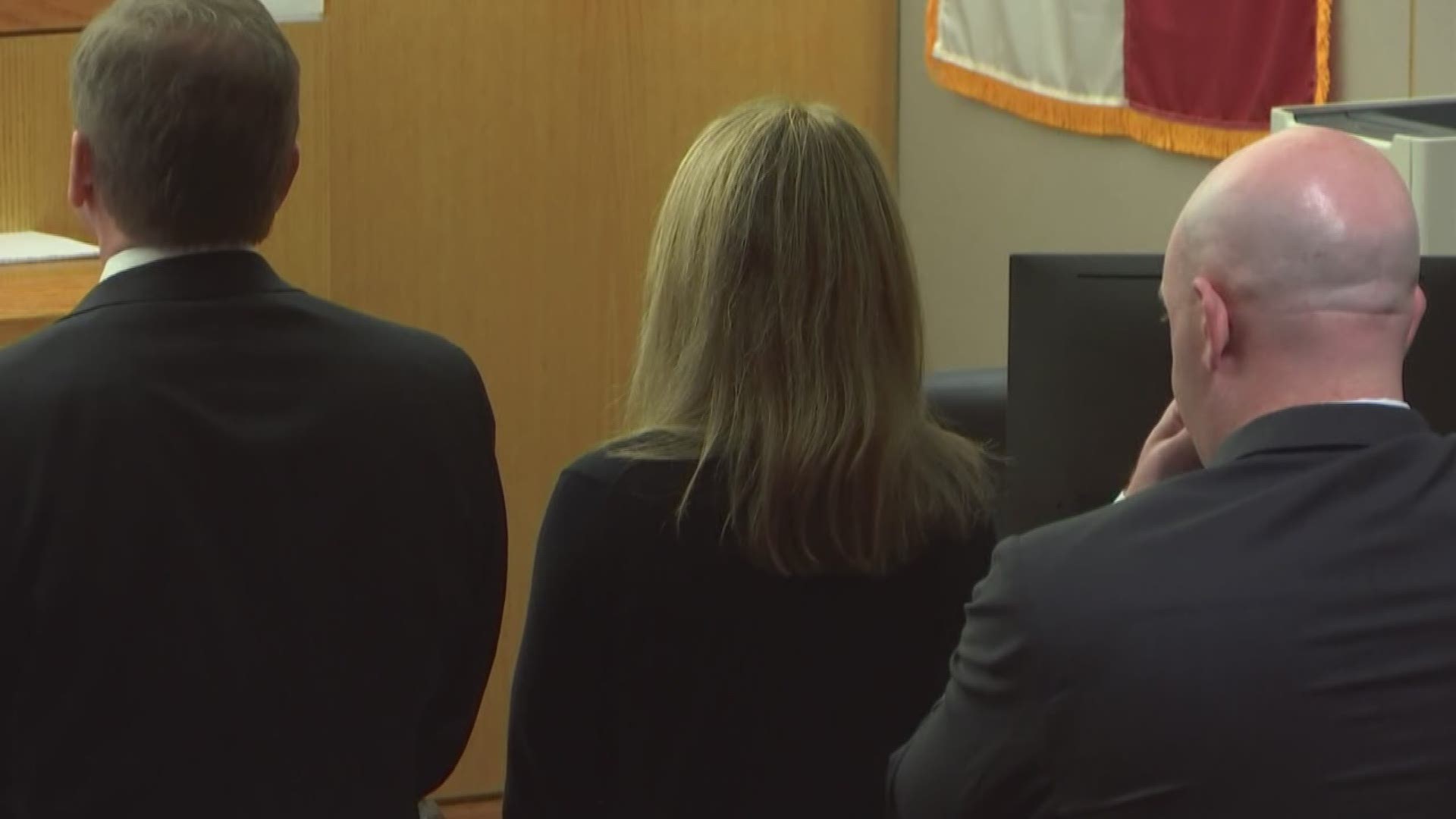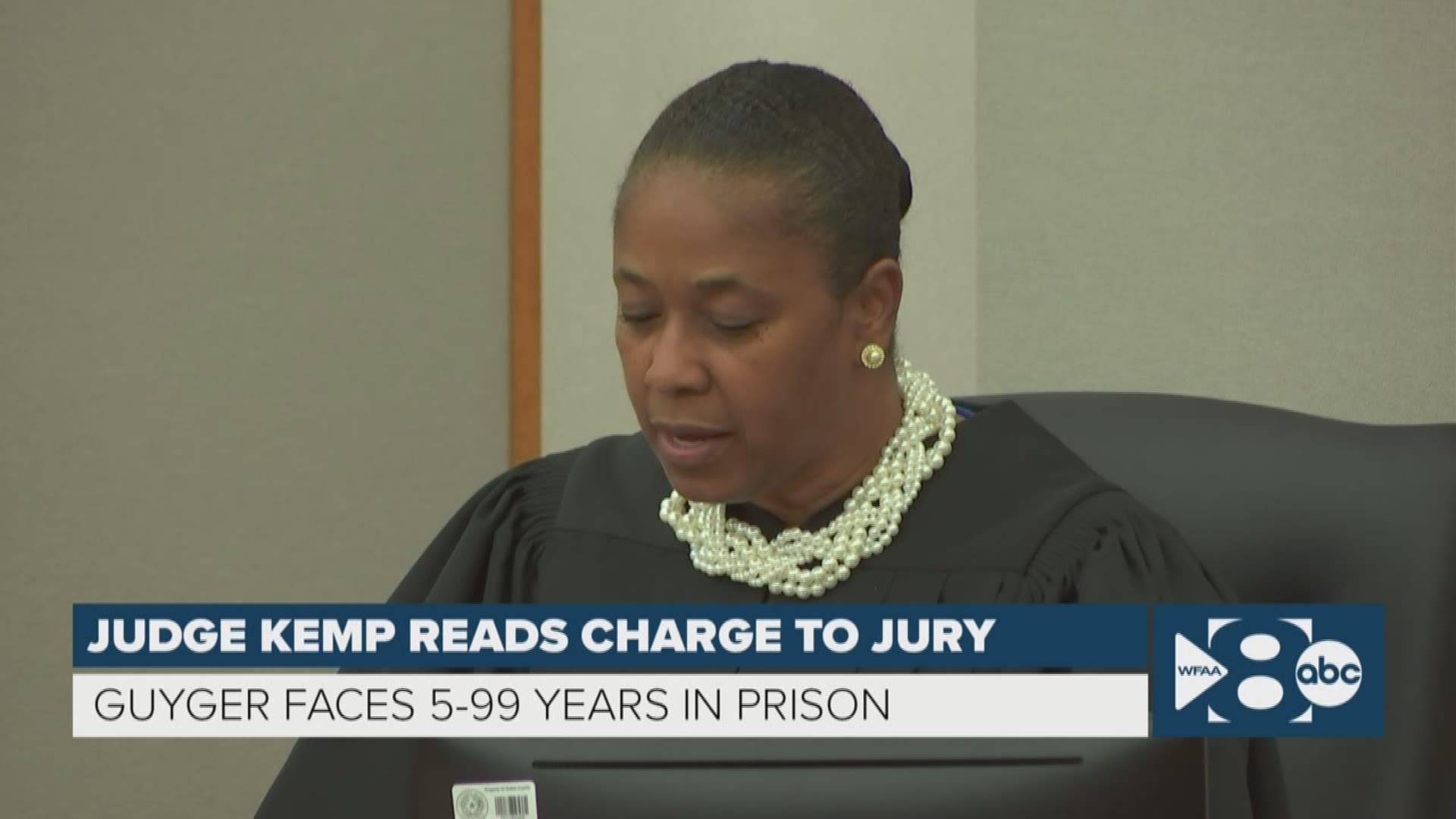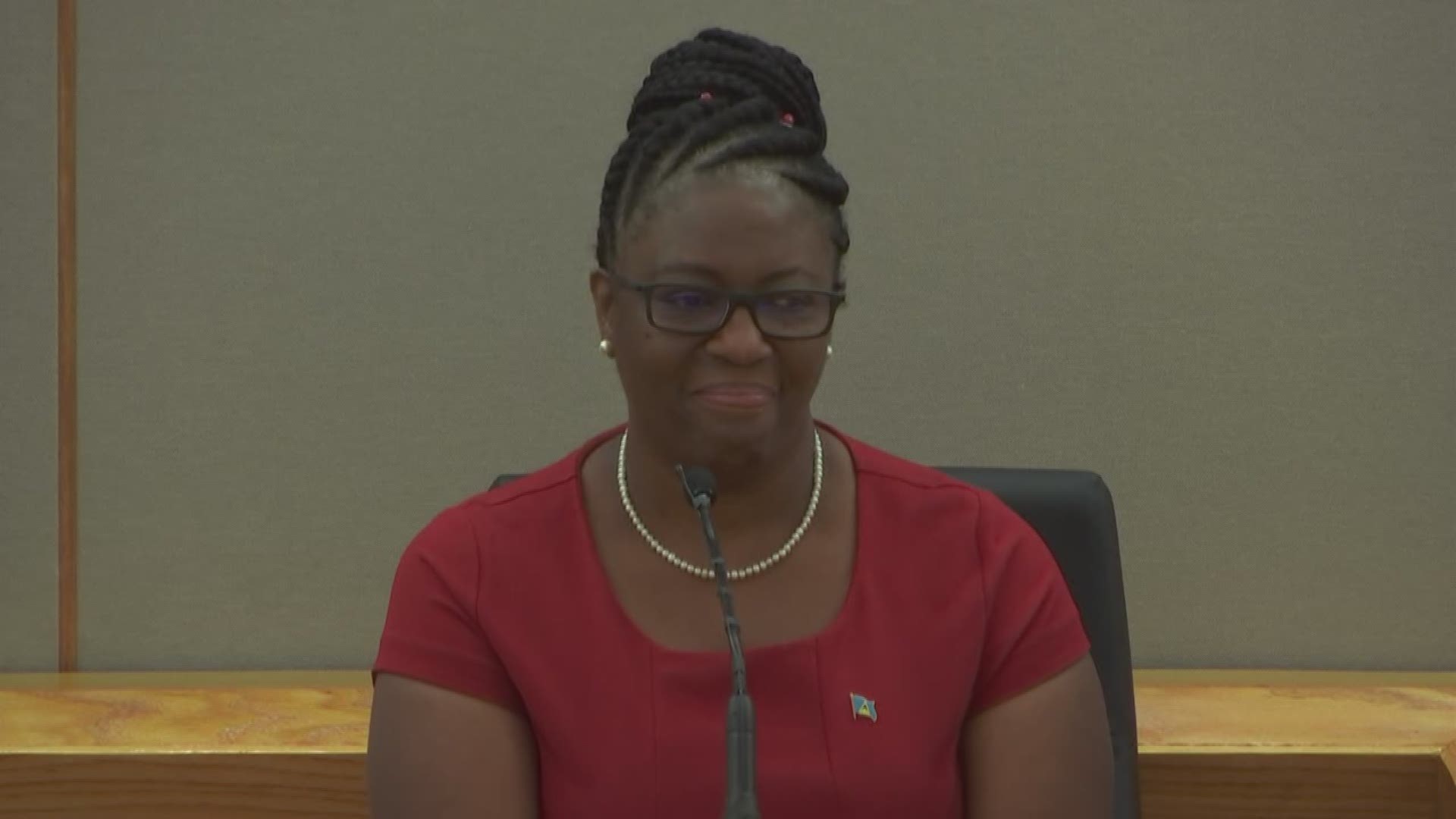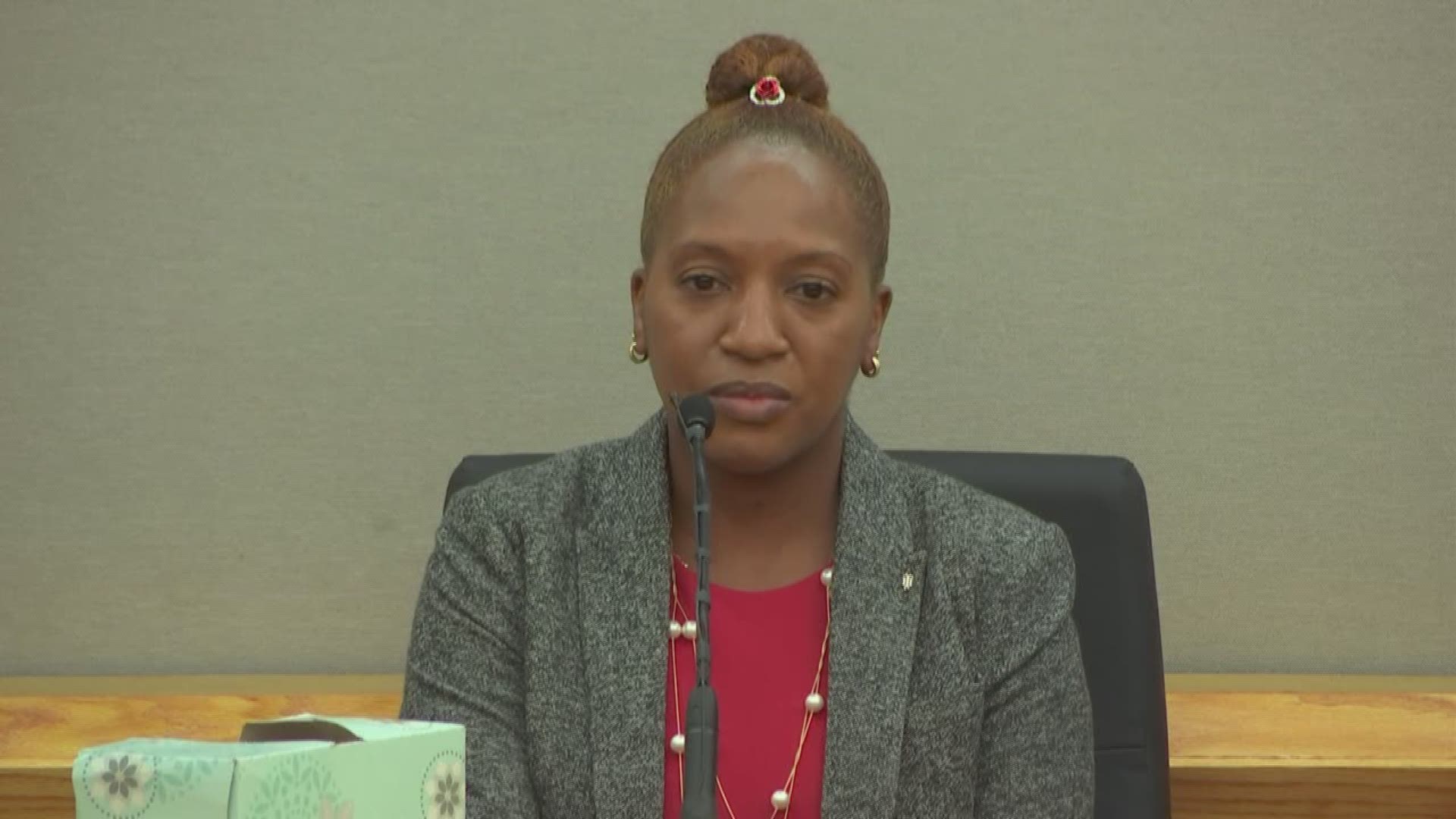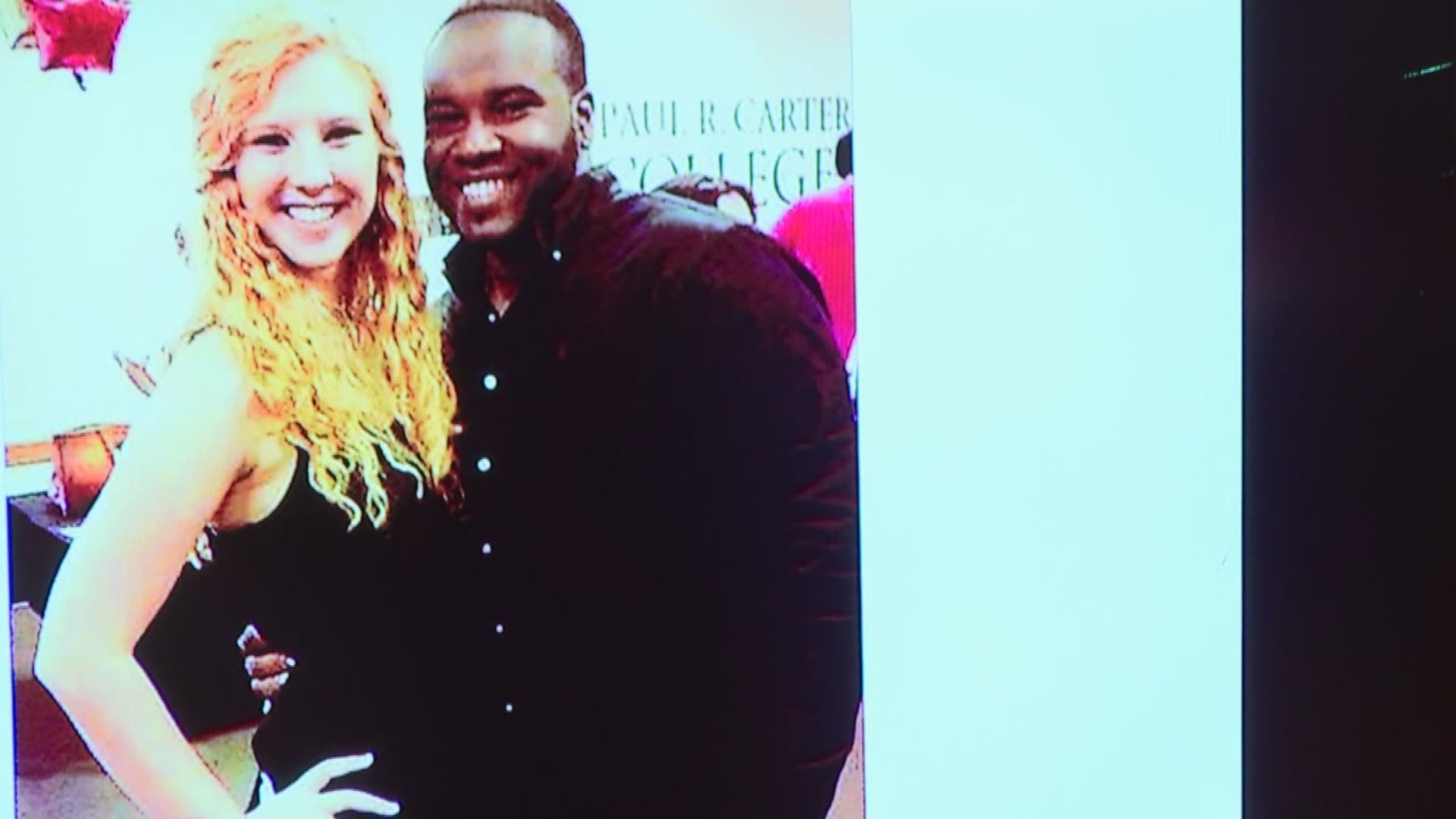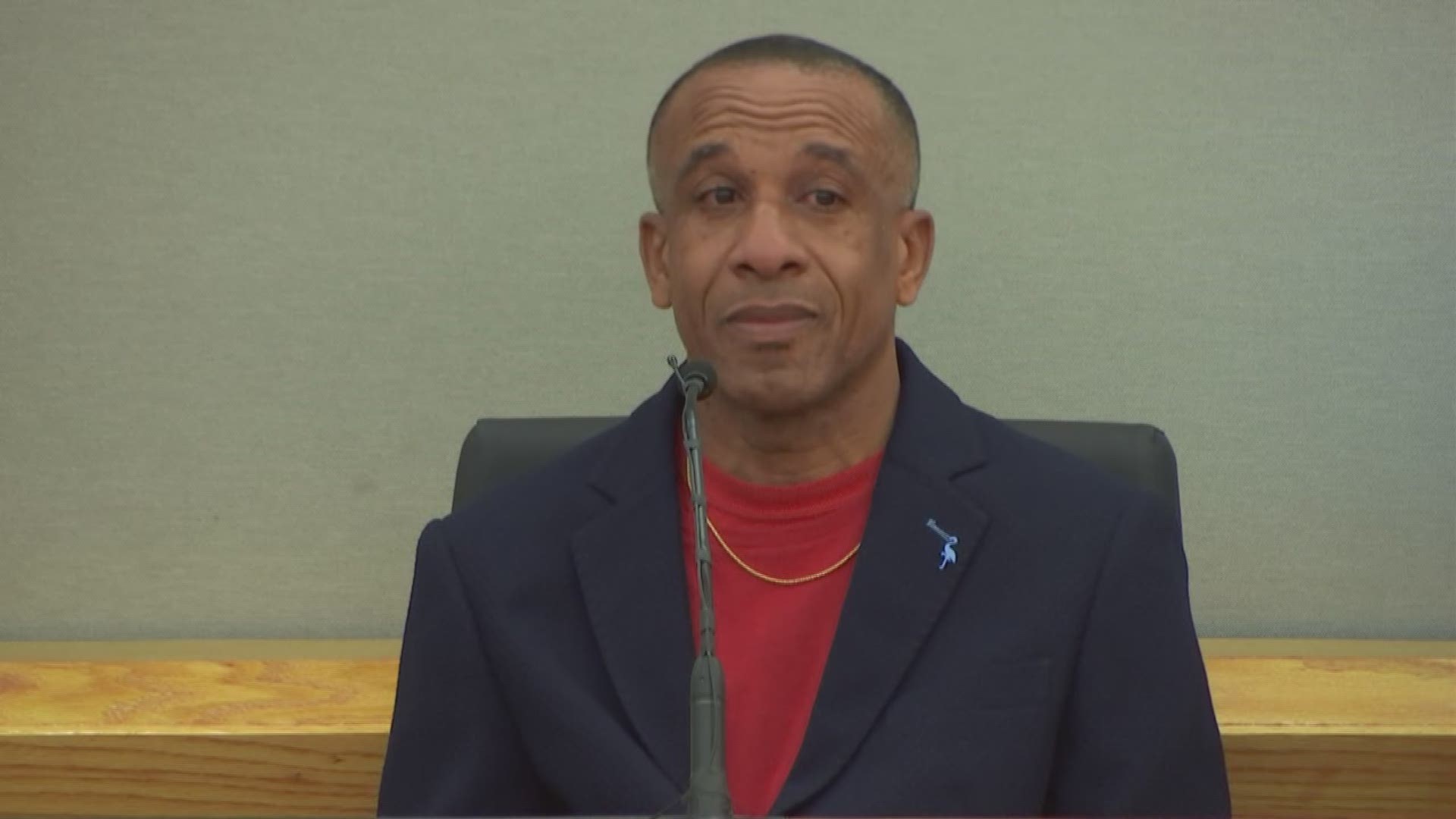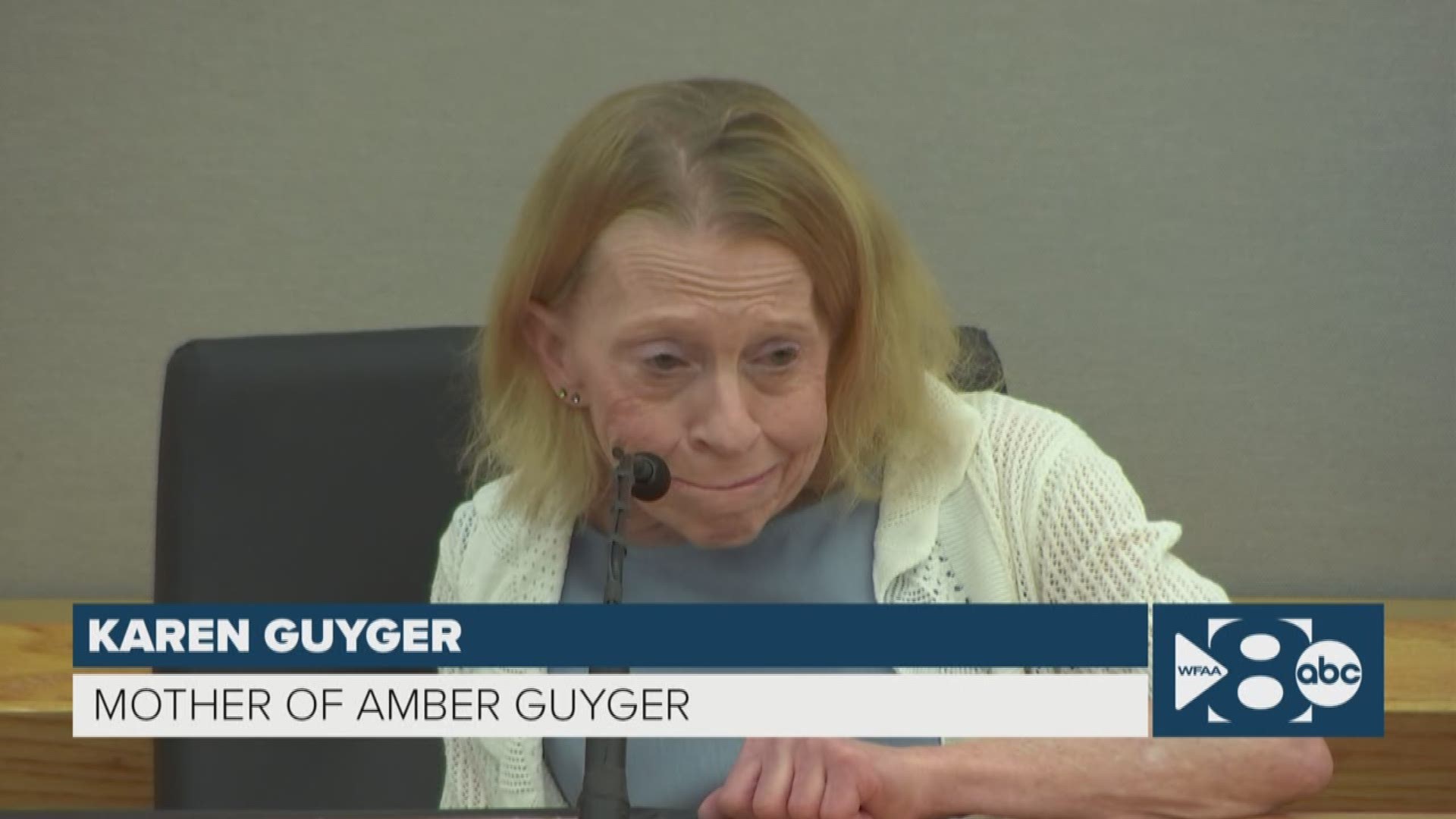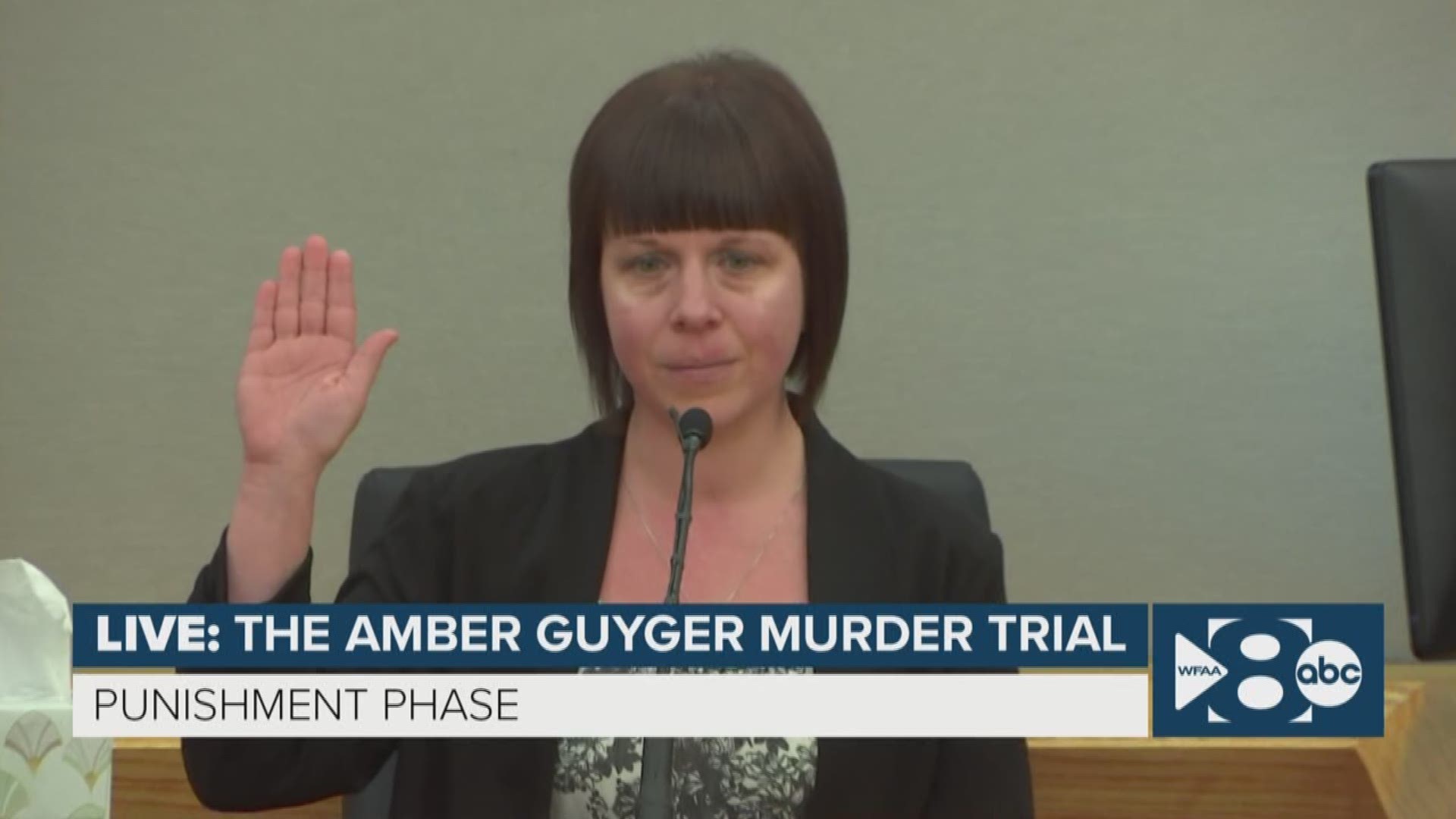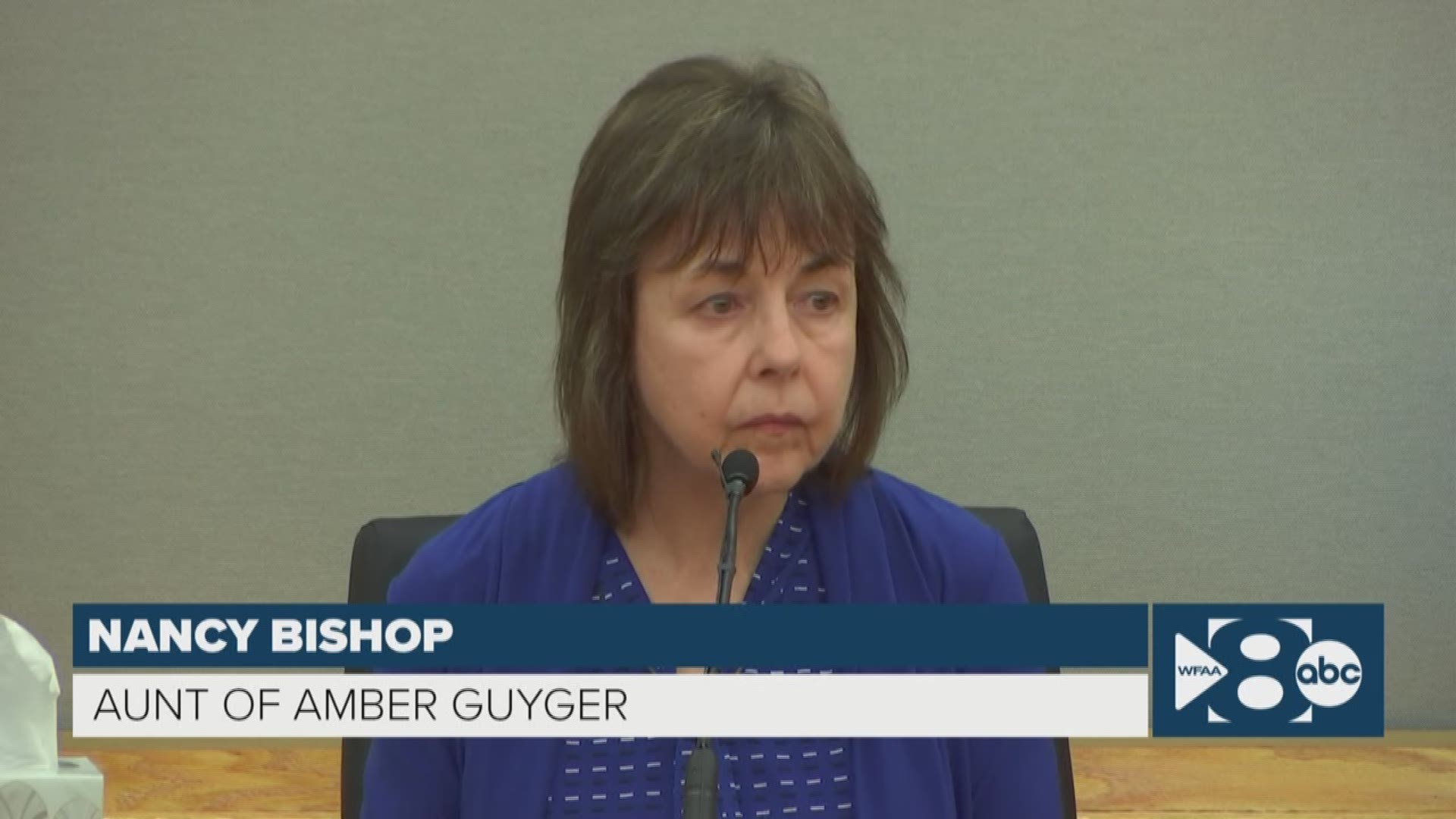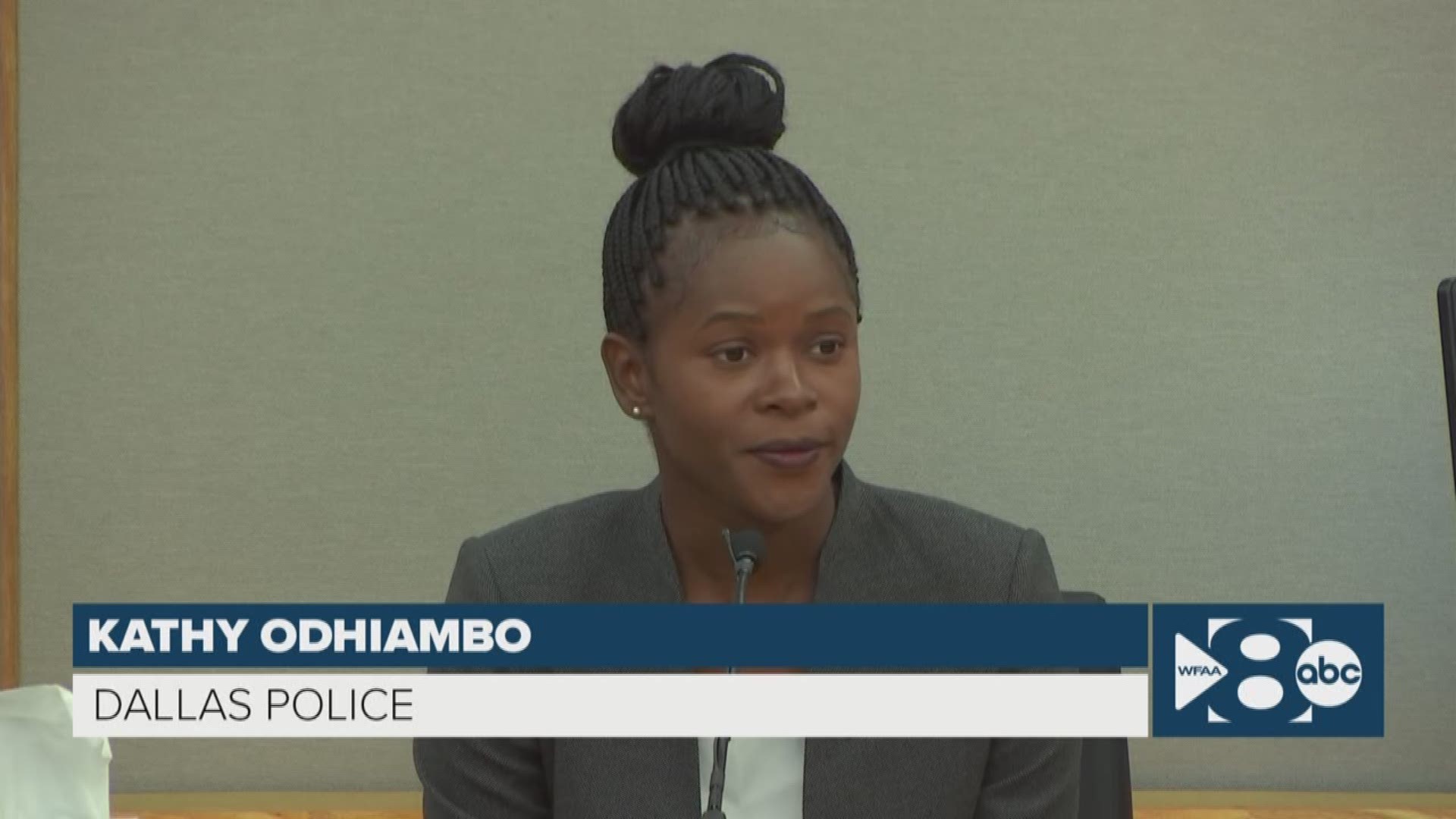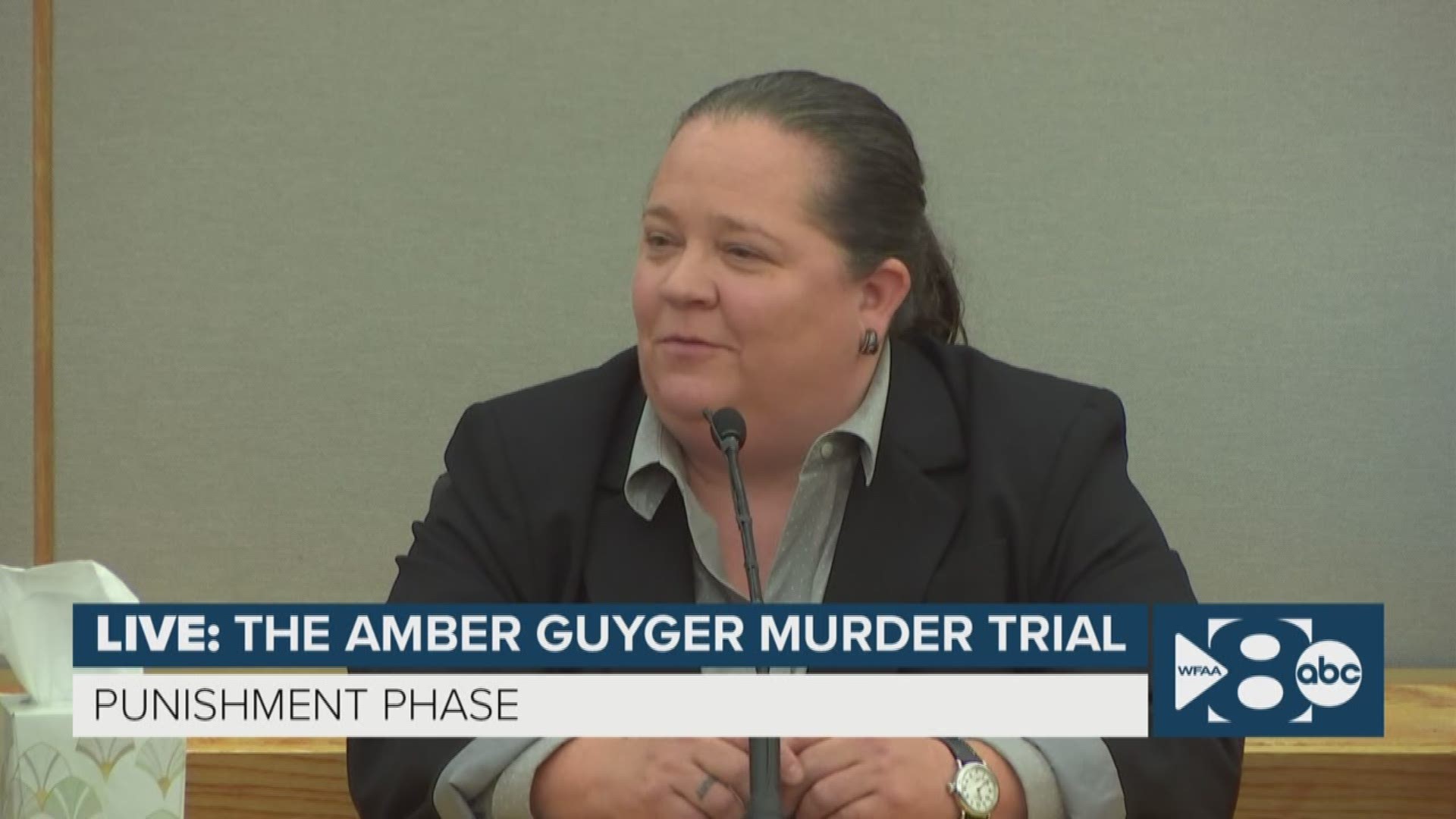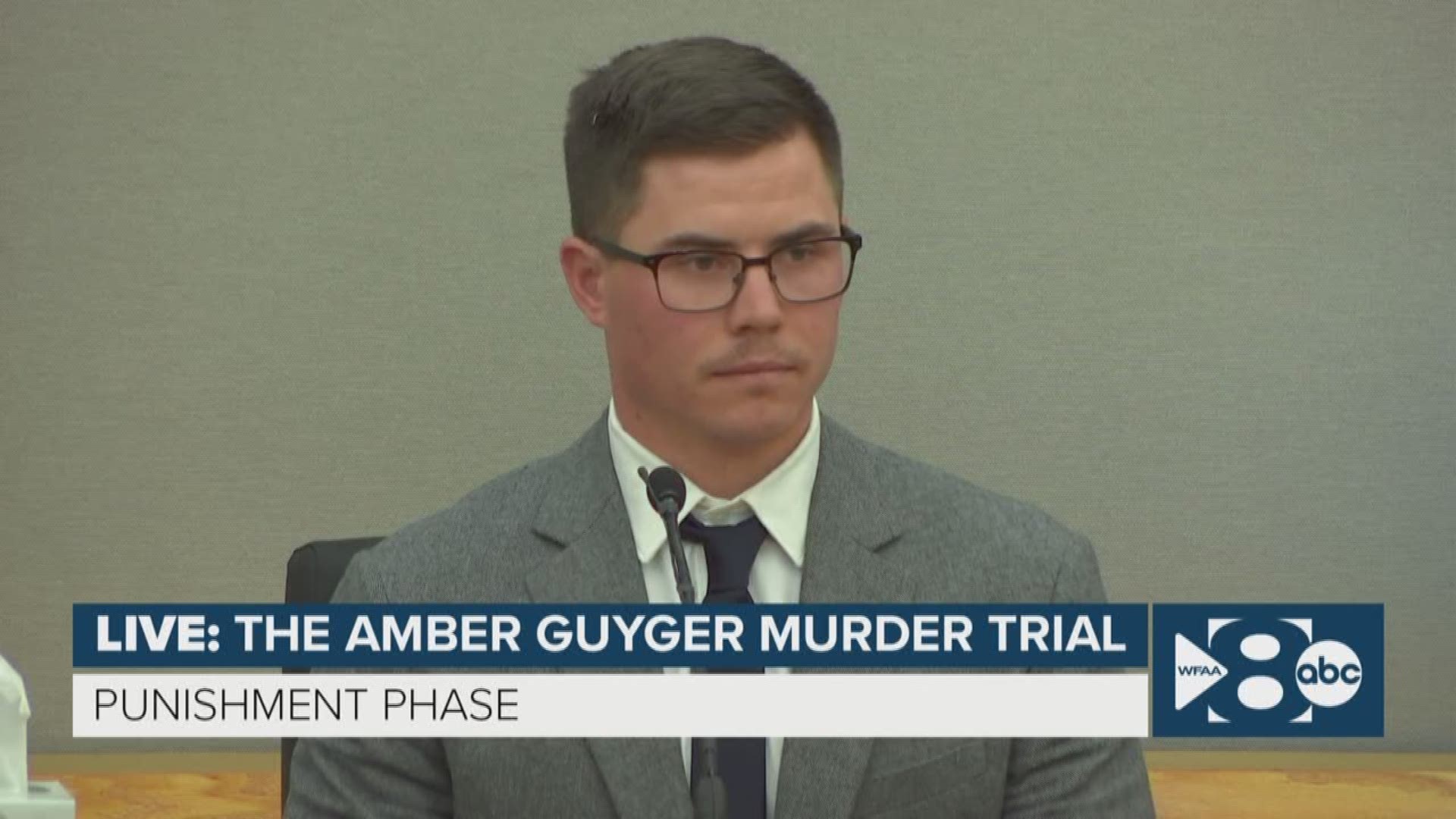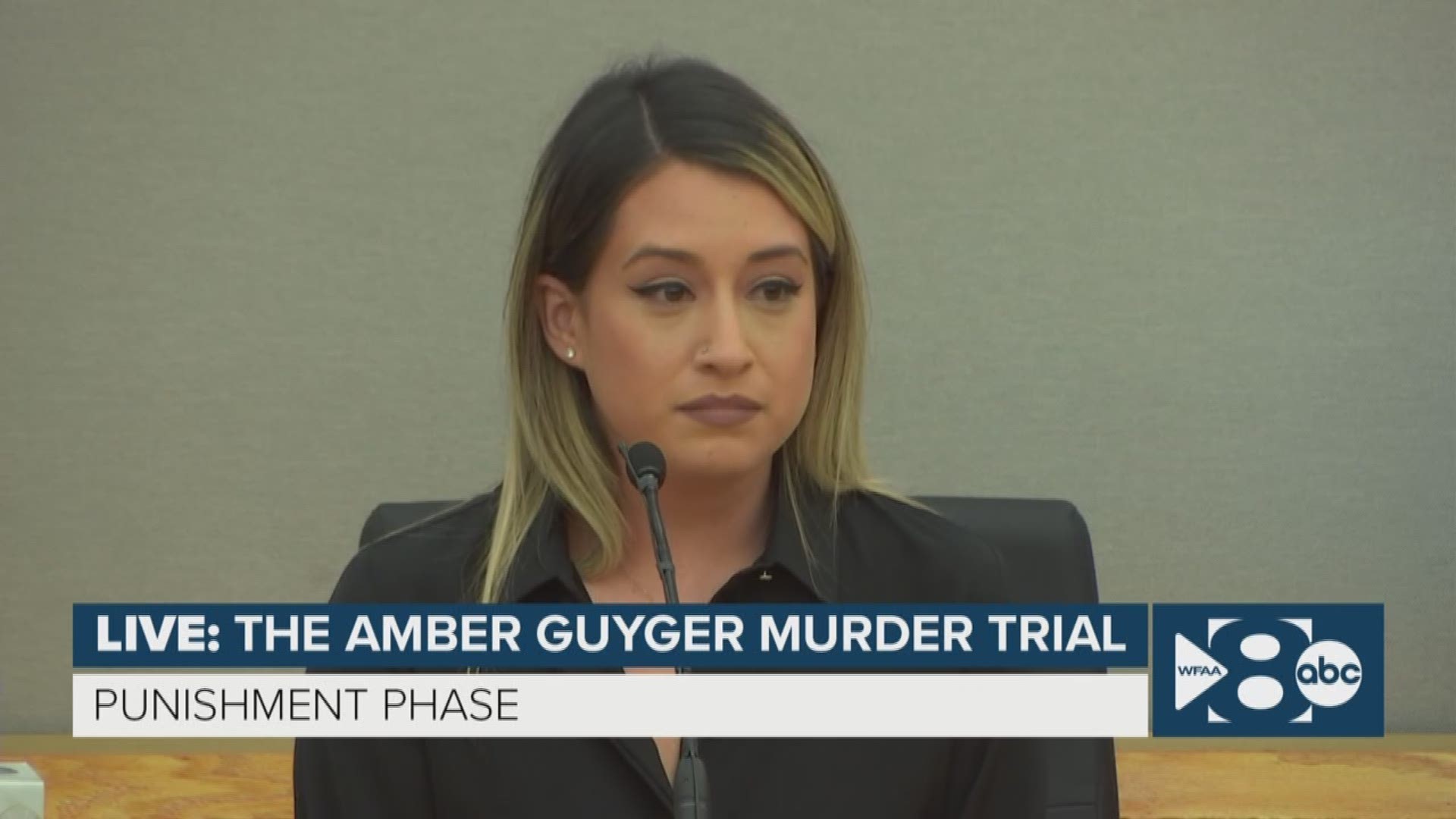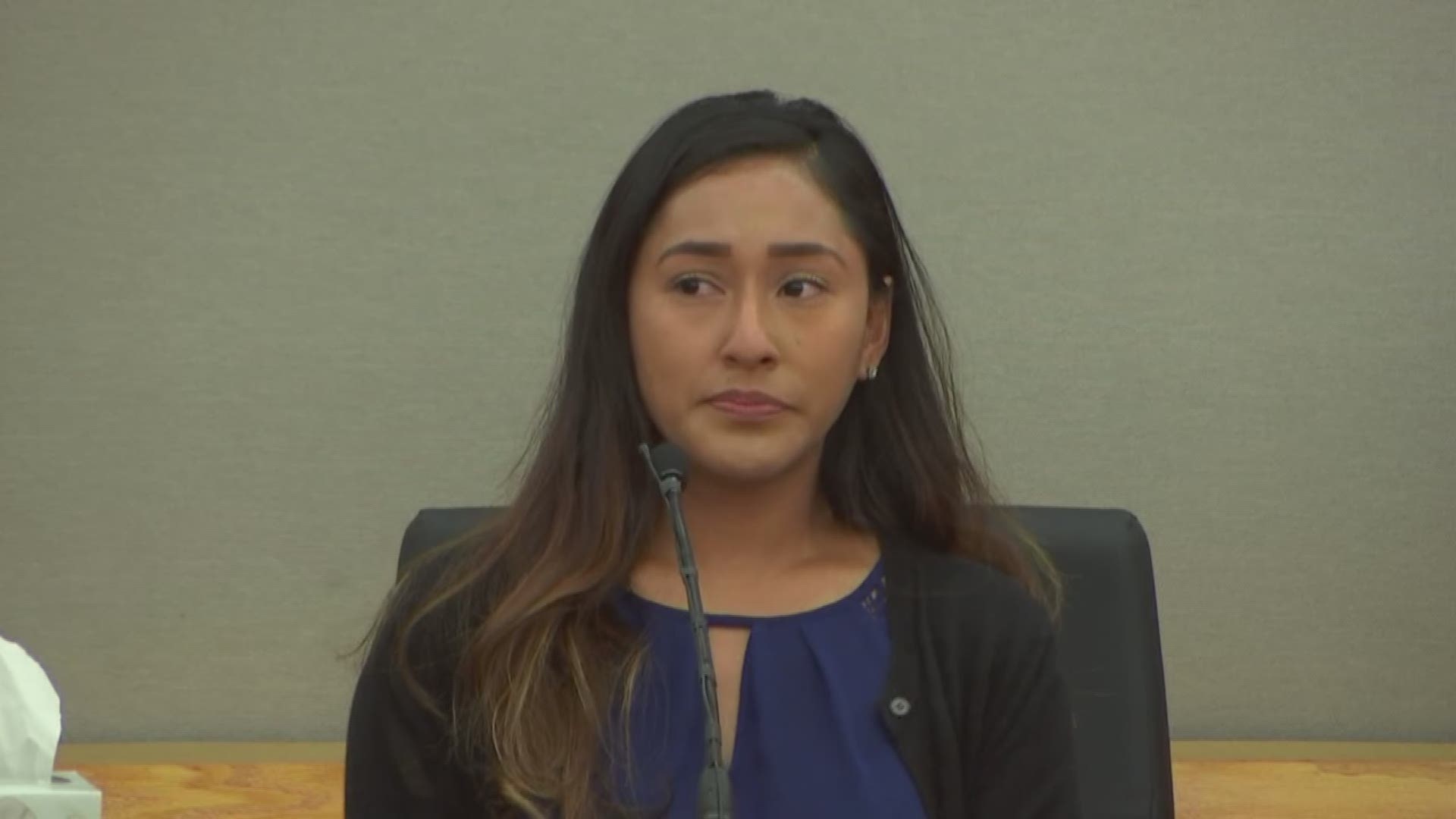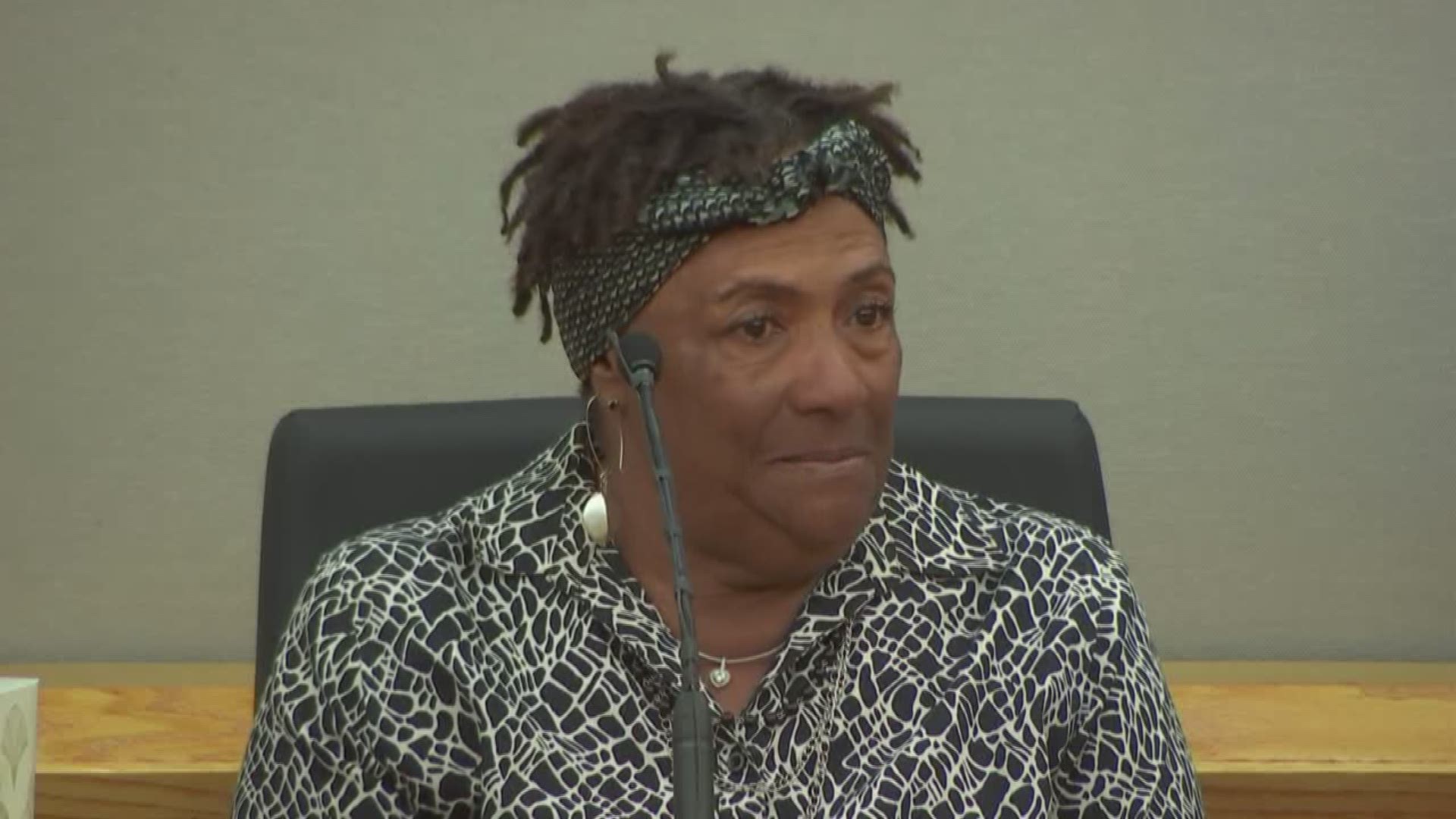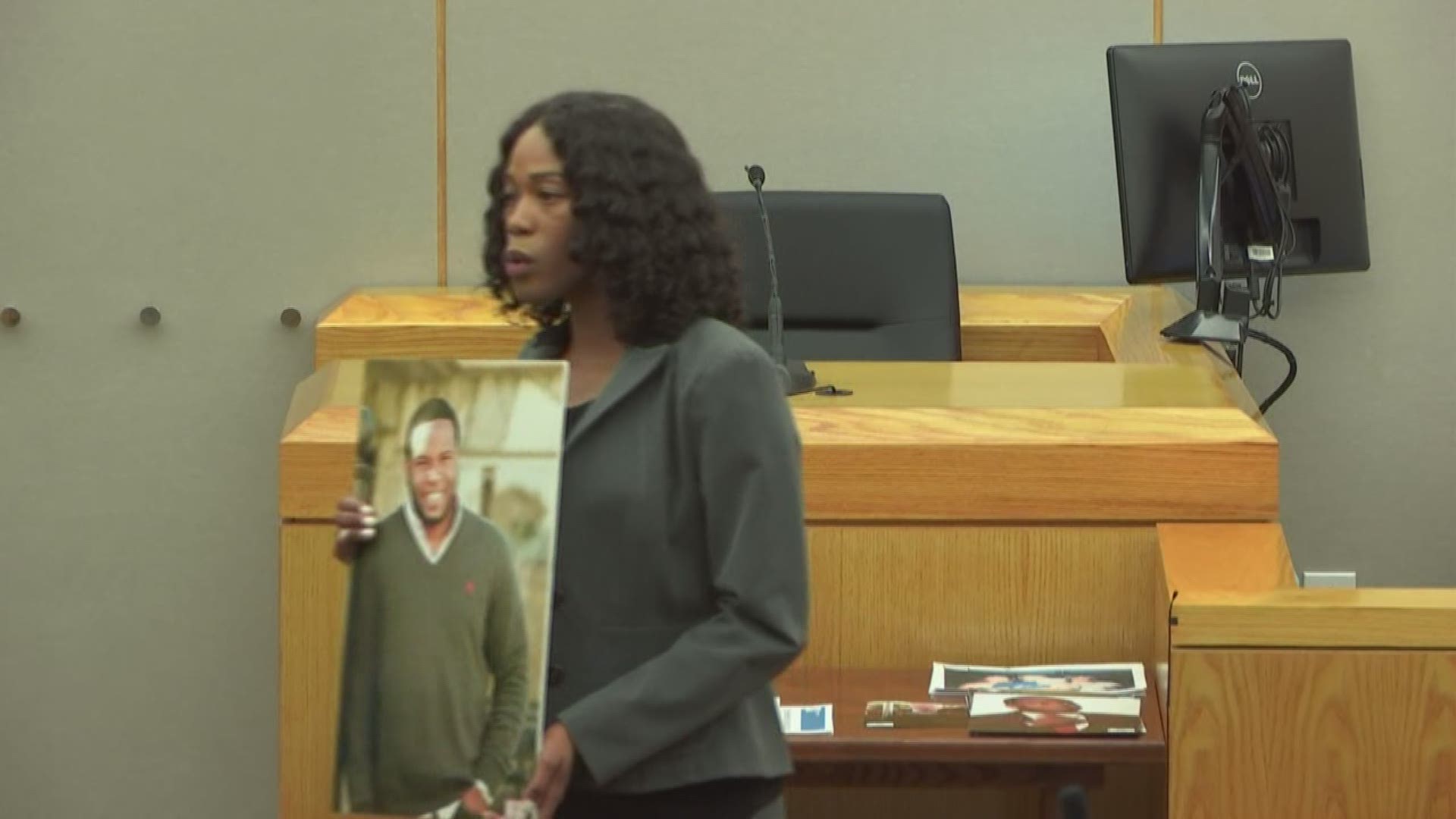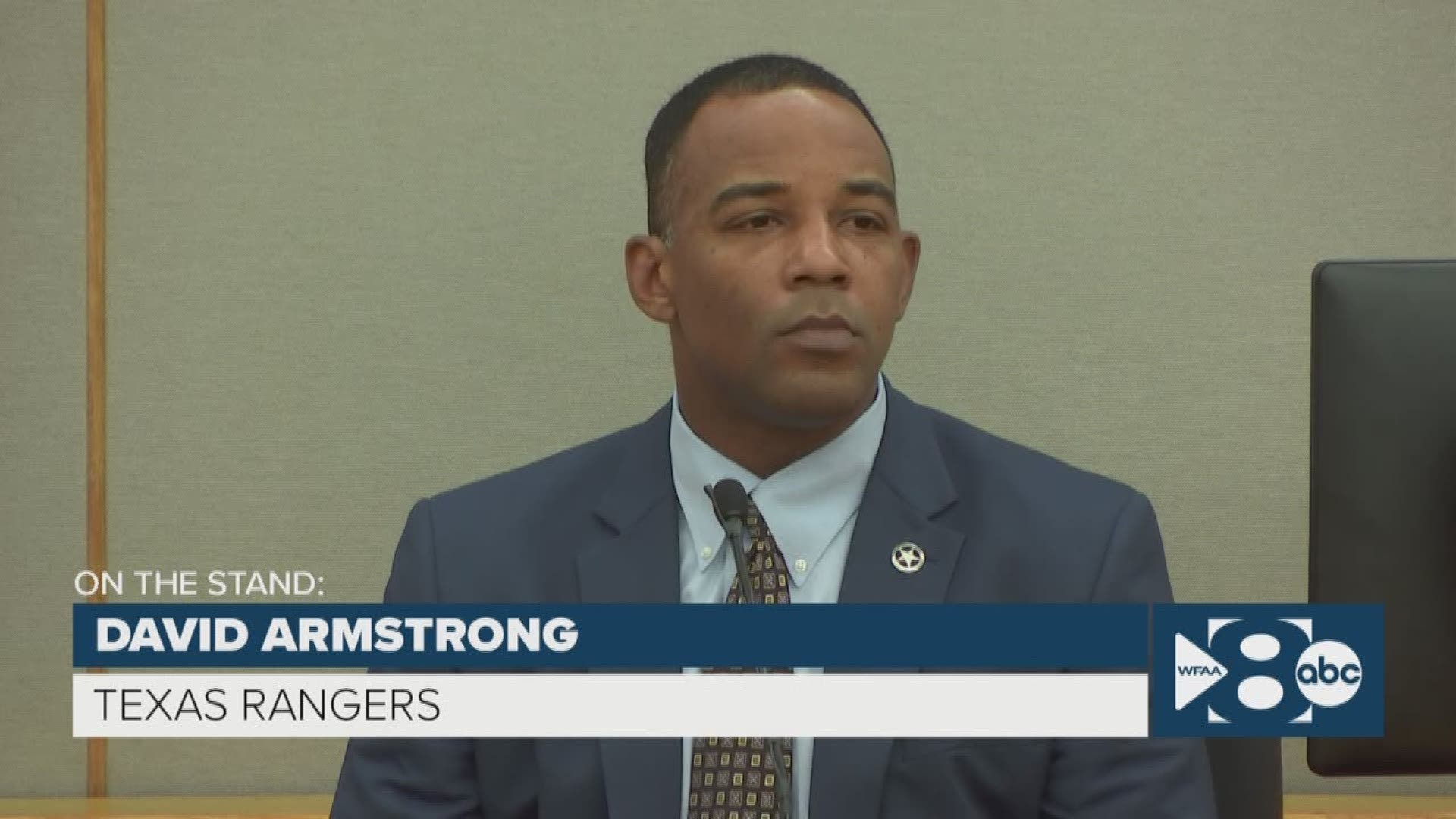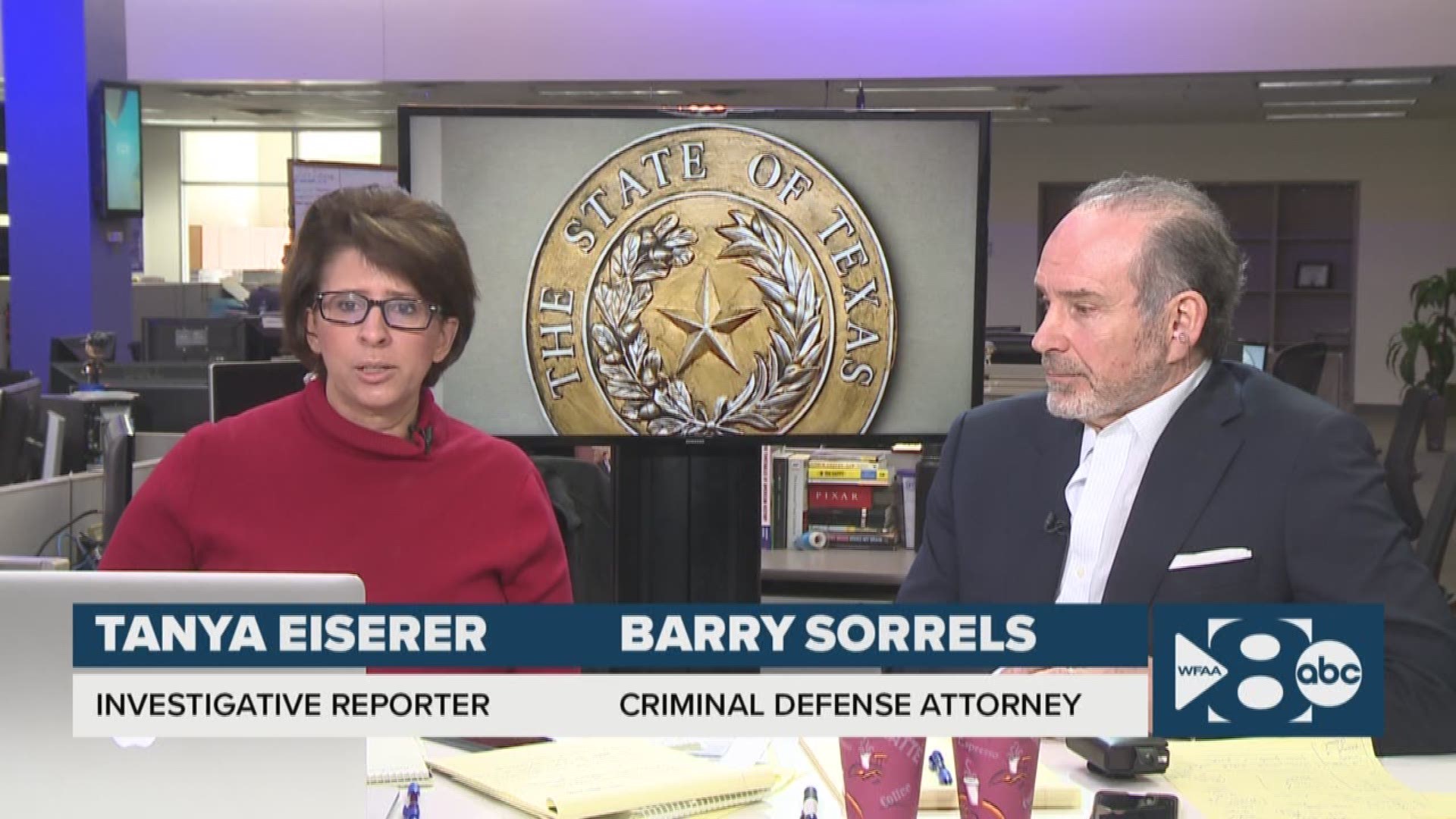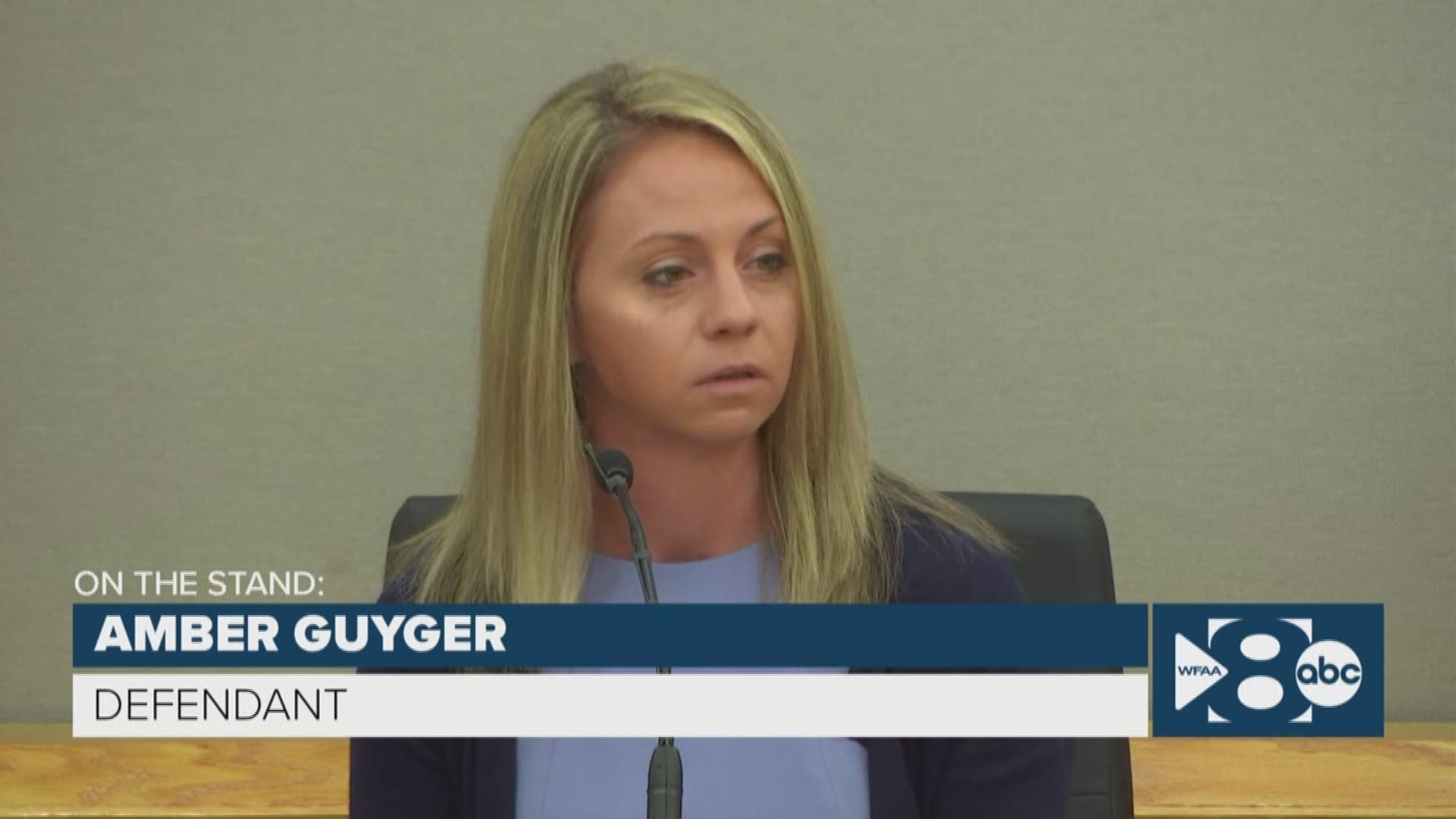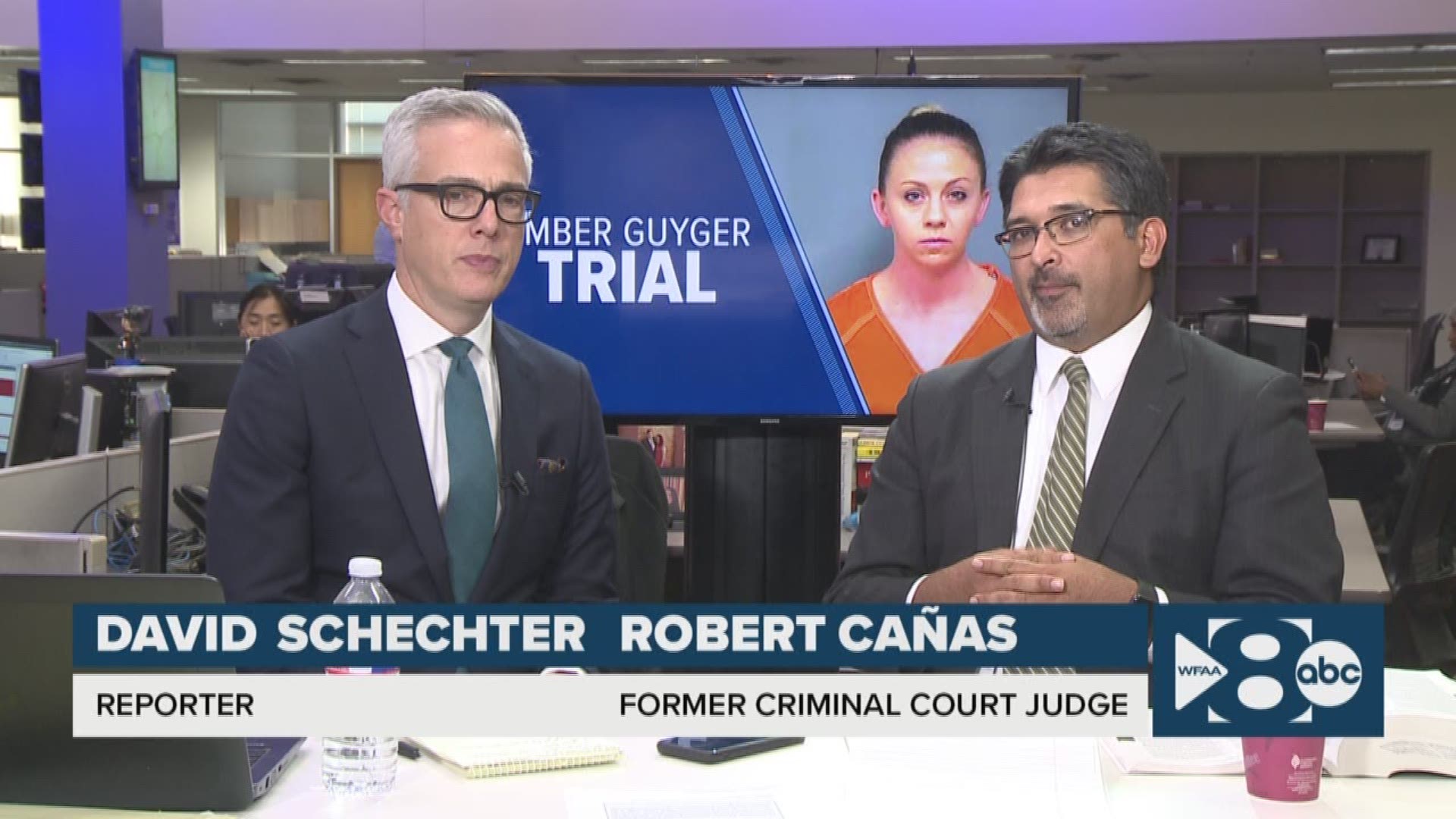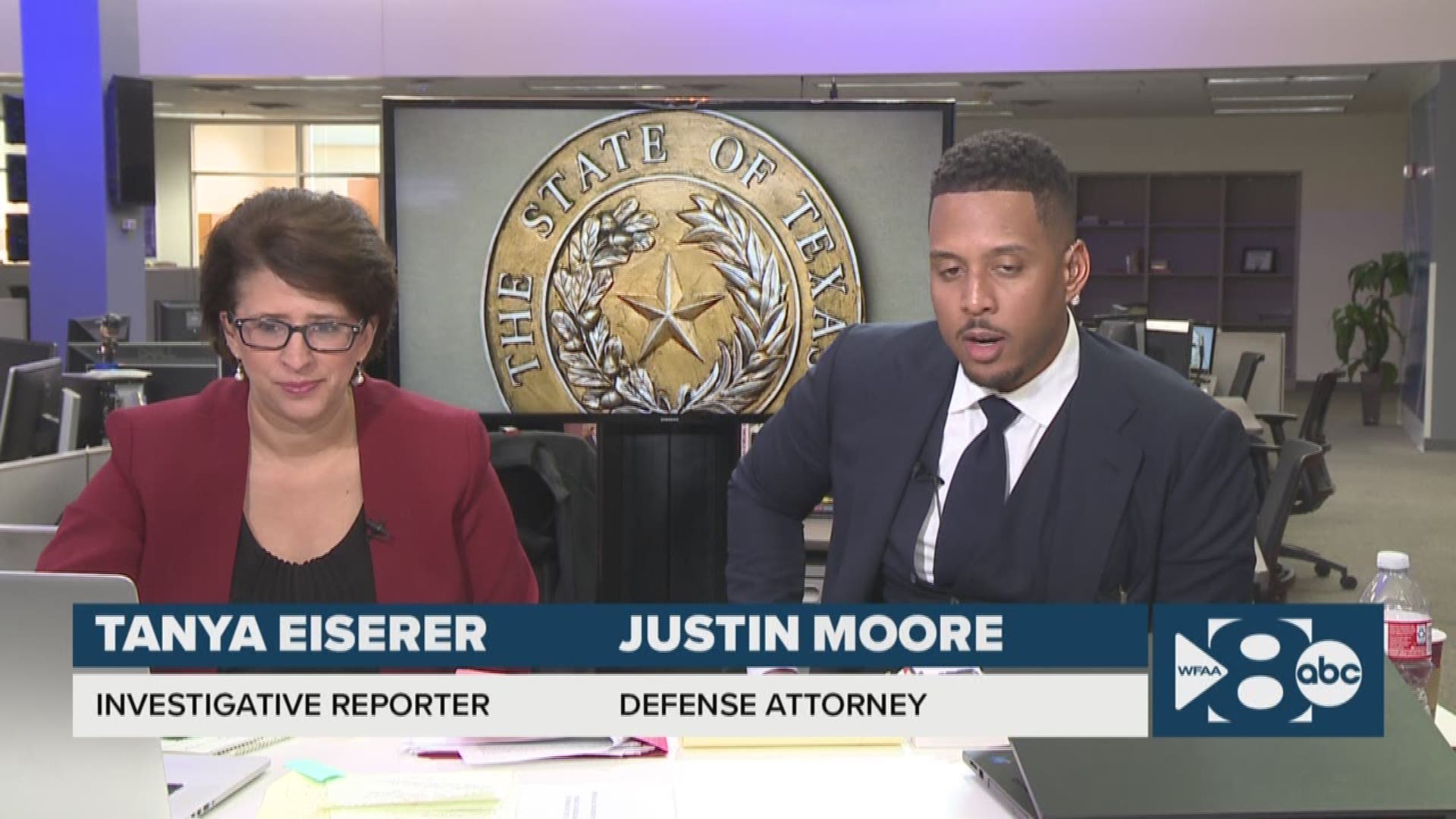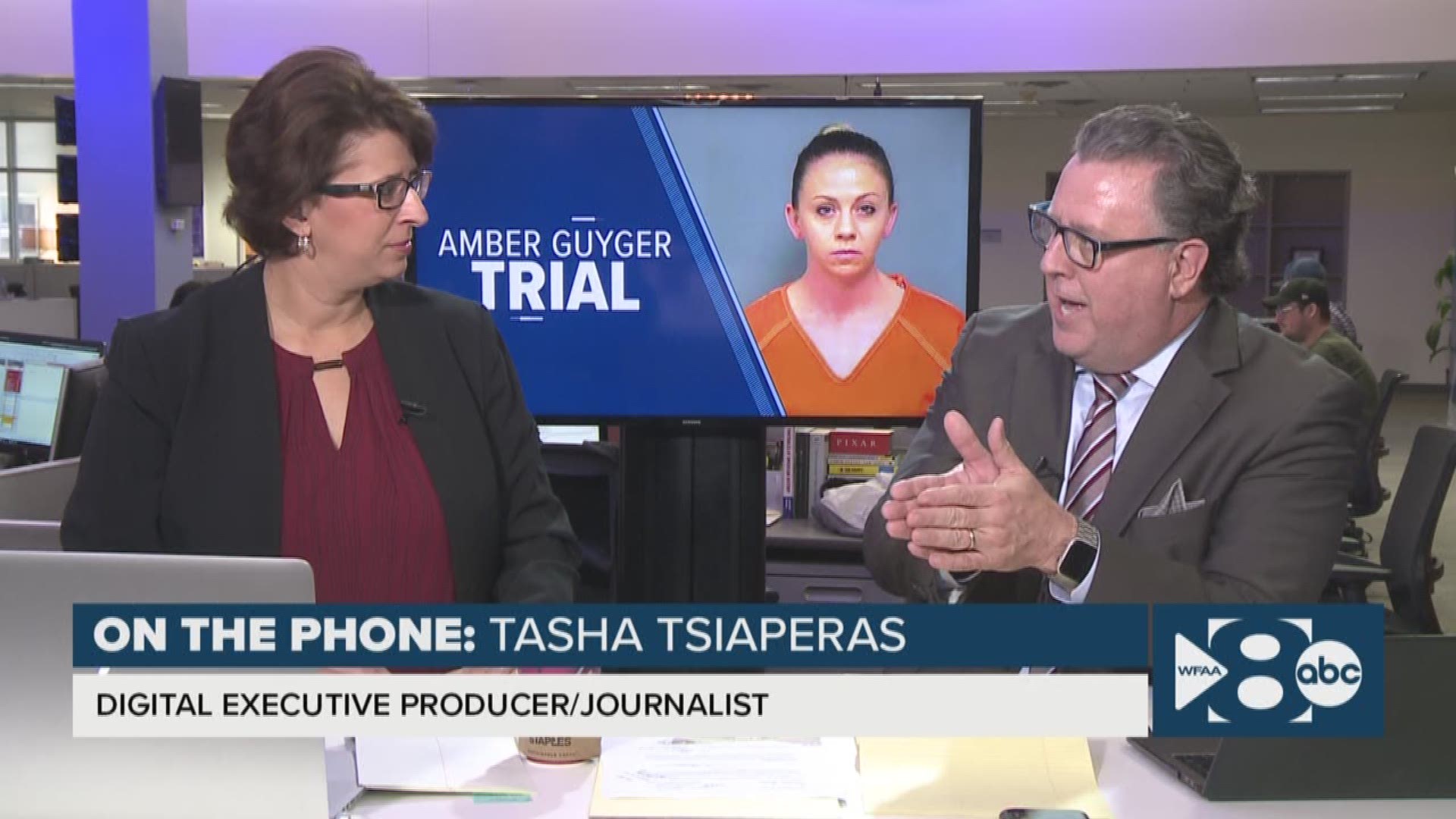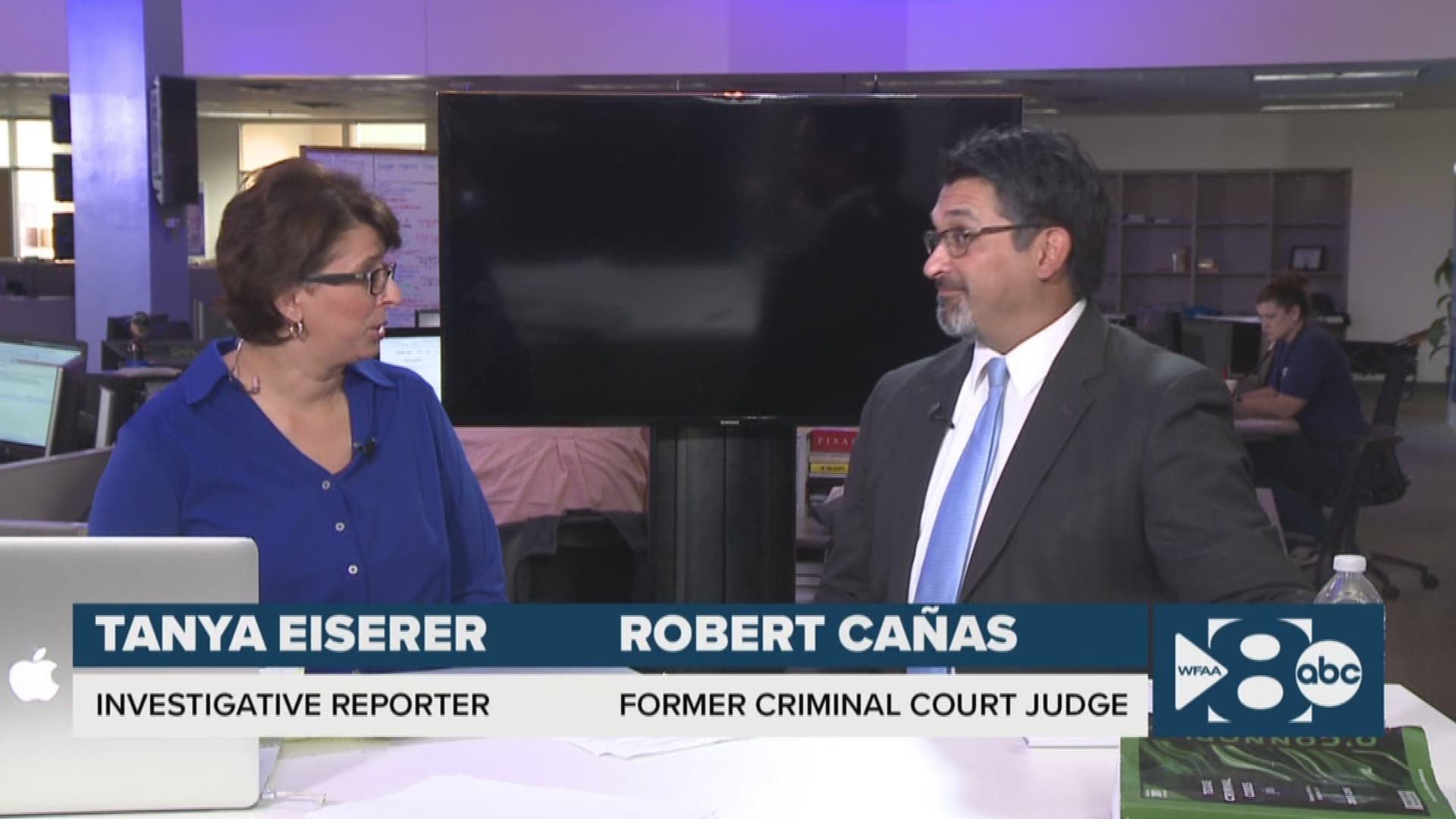Editor's note: This story will be updated each day of the trial to detail who has testified and key points from testimony.
Correction: The story previously said Botham Jean was 28 when he died. He died at age 26; he would have turned 28 this past Sunday.
The jury sentenced Amber Guyger to 10 years Wednesday for the murder of Botham Jean.
The judge allowed the jury to consider "sudden passion" when deliberating a sentence, but the jury said they didn't think this was a crime of "sudden passion."
Texas law defines sudden passion as "passion directly caused by and arising out of provocation by the individual killed."
If jurors believe that to be the case, then they can consider a sentence ranging from two to 20 years. If they don't believe it was a crime of sudden passion, then Guyger faces five to 99 years.
The state asked the jury to sentence Guyger to a minimum of 28 years – the age Botham Jean would have been on Sunday.
The state and defense completed its closing arguments during the sentencing face Wednesday afternoon after two days of testimony from witnesses called by the state and defense.
Verdict and sentencing:
The state began its case for punishment on Tuesday afternoon, after the jury found Amber Guyger guilty of murder. The jury delivered the verdict after about six hours of deliberating.
Allison Jean, Botham's mother, was the first to take the stand. She spoke about her son's life and how his death has affected her.
"I cannot sleep," she told the courtroom. "I cannot eat. It's just been the most terrible time for me."
Later in the day, Botham Jean's sister Alissa Finley took the stand to talk about her brother.
Prosecutors also showed jurors racist and violent texts made by Guyger, as well as social media likes and comments.
RELATED: State reveals racist and violent texts, social media comments during Amber Guyger sentencing phase
Alexis Stossel was the first witness to take the stand on Wednesday.
She described her relationship to Jean as best friends.
"Next to my husband, Botham was my absolute person," Stossel said.
The two met while they were attending Harding University and remained close friends until his death.
"People gravitated towards him," she said. "It didn't matter if you didn't know him personally or you just were in the same room, you just felt welcomed by his presence."
Stossel described how the two talked about what they viewed as success during her testimony.
"We debated on what success meant to us, you know whether it was how much money you had or what your job title was, but he just really believed that success was your impact on people and how you help people," she said.
Stossel described how the two had talked on the phone the day before Jean's death.
"Life was getting better, work was a little less stressful, he was excited about the upcoming days," she said. "We had planned to have him come visit for the weekend in October."
The prosecutor then asked her about she found out about Botham's death.
"I got a phone call about 6 in the morning, and I was told that Botham had been shot, and he didn't make it," she said. "I slumped to the floor, and I just kept screaming 'Wait wait wait.. wait.' I hung up the phone, and I called Botham seven times, and there was no answer. I have never lost someone this close in my life, and the feeling is just un-explainable."
Bertrum Jean, Botham Jean's father, then took the stand after Stossel.
He described his fond memories of Botham as he grew up and how much he misses him during his testimony.
"I loved my Sunday morning," Bertrum Jean told the courtroom. "My Sundays have been destroyed. That's when I would be, I waited for him to get home from his worship."
Sundays would be a time the two would talk on the phone, Bertrum Jean told the court.
"Sundays are not a good day for me," he said.
Amber Guyger's mother, Karen Guyger, took the stand Wednesday morning following Bertrum Jean's testimony.
During her testimony Wednesday, prosecutors asked Karen Guyger to tell the courtroom about how Amber Guyger had been sexually molested by a man Karen had been dating when Amber was 6 years old.
The man later pleaded guilty to the crime, prosecutors said.
Alana Guyger, Amber Guyger's older sister, took the stand following their mother and also testified about the incident, along with her memories of growing up with Amber.
Nancy Bishop, Guyger's aunt, took the stand after Alana.
Cathy Odhiambo, a close friend of Guyger's, followed Bishop to testify on behalf of Guyger and share her memories of their friendship.
"She's always been there for me," Odhiambo said. "She's a friend I can talk to, I call her when I'm having difficulties, she's that friend because she listens to you and she cares, and she cares about my kids, and she's around my family, and this is a girl that I love as a friend, she's been good to me all the time I've known her."
Rhonda Richeson, a detective with the Dallas Police Department who worked with Guyger and helped train her, took the stand after Odhiambo to talk about her time working with Guyger.
"Amber came to me ready to be out on the streets, it was a pleasure to sit with her," Richeson said during her testimony. "The first few days I made sure I was there to help her out and stuff like that, I acted as a trainer but the rest of the two and a half weeks that I had her, I told her 'You're ready, you're ready to get out there and do this job. Let's just be partners now.' So we acted like partners. We answered calls together. Two-man, the dangerous calls, and she did fantastic."
Thomas Macpherson, a friend and colleague of Guyger's while at the Dallas Police Department, testified as well. He talked about how they responded to dangerous calls together, including the July 7, 2016, shooting of police officers in downtown Dallas.
Guyger's friend from high school Mirabel Chavez was the next to take the stand and testify on her behalf.
"She's had immense remorse," Chavez said. "She, Amber, has a lot of love to give. Even prior to this, Amber, I don't feel like, feels like she's worthy of love, that she's not worthy of a big love, so this happened, and she just does not feel like she deserves to have any kind of happiness, and anytime she even gets close to even like a smile, she kind of reverts back."
Brenda Salas, another friend of Guyger's from high school, also testified on her behalf.
"My family and I were going through some really hard times [when they were in junior high], I felt like I was alone, like I couldn't talk to anybody about any of this stuff, and Amber was there to listen to me," she told the courtroom.
She ended her testimony with a message Amber had told her the last time she'd seen her.
"The last time that I saw her, she just told me she just wanted to say sorry to his family."
LaWanda Clark testified after Salas. Clark told the courtroom how Guyger had helped change her life as a police officer.
Prosecutors delivered their closing arguments following a break after Clark's testimony.
During their closing arguments, prosecutors asked the jury to give Guyger a minimum sentence of 28 years, the number of years old Botham Jean would have been this year.
Guyger's defense attorneys asked jurors to consider her life history, that it was a mistake she made and what she will face for the rest of her life.
"For the rest of her life, every day, every hour, every minute, she'll think of what she did to Botham Jean and regret it in every bit of her soul," one of Guyger's defense attorneys said during closing arguments.
But prosecutors wanted jurors to remember as they consider the sentence that while she will be able to communicate and visit with her family, Botham Jean will not be able to with his.
"When you give that number, you think about those people sitting over there in red," the final prosecutor to speak said. "You think about that family. That they can't call him, they can't write him, they can't go visit him. These are all things that her and her family can get to do still today, even inside of the penitentiary."
After about an hour and a half of deliberations, the jury sentenced Guyger to 10 years in prison for Jean's murder.
________________________________________________________________
The defense rested its case on Monday morning in the murder trial of Amber Guyger, and the prosecution chose not to call any rebuttal witnesses.
Prior to each side delivering their closing arguments, Judge Tammy Kemp read the jury’s “charge,” or set of legal instructions Judge Tammy Kemp read to panelists before final arguments began.
The state finished its final statements just before 1 p.m. Monday and the jury was dismissed before lunch before beginning deliberation.
The jury and four alternates are sequestered for the duration of the trial.
Despite objections from the defense, the prosecution was allowed to show jurors text messages and social media comments written by Guyger that were racist and violent in nature.
The prosecution showed several text threads and Pinterest post comments made by Guyger.
RELATED: State reveals racist and violent texts, social media comments during Amber Guyger sentencing phase
The defense is expected to call witnesses as the sentencing phase continues Wednesday morning.
Day 7:
There was no testimony in court on Monday.
Instead, following hearing objections for the defense and prosecution, Judge Tammy Kemp read the charge to the jury, outlining what they would be deciding and the key definitions they needed to consider.
Following that, prosecution and defense lawyers gave their closing arguments.
Prosecutor Jason Fine went first, calling Guyger’s testimony that she thought her life was in danger, and defense arguments of self-defense "garbage."
“It’s not a mistake,” Fine said of Guyger’s actions. “It’s a series of unreasonable decisions.”
Veteran former prosecutor-turned-defense attorney Toby Shook spoke to jurors next.
He said that the only evidence that matters is what led up to his client opening the door and shooting Jean at the South Side Flats. He said questions about whether Guyger performed appropriate first aid afterwards, whether she followed police procedure in an off-duty shooting, and salacious details about her relationship with a married officer were all irrelevant to whether she committed murder.
He reminded jurors that evidence showed that dozens of South Side Flats residents had also made mistakes about which floor they were on, and some had even gone to the wrong apartment thinking it was theirs.
“The law recognizes that mistakes can be made,” Shook told jurors, calling the incident a “horrible perfect storm” of circumstances.
Robert Rogers, another defense attorney, called the state’s case nothing more than “sexting and speculation,” referring to lewd text messages Guyger shared with her partner.
“She’s an ordinary and prudent person who made a mistake,” Rogers said. “She believes this intruder is coming to kill her.”
The last person the jurors heard from was lead prosecutor Jason Hermus, who said jurors cannot let the death of an innocent man, sitting in his apartment, eating a bowl of ice cream, go unpunished.
“It was her intent at the moment she shot him, to kill,” he said. “The defendant has committed murder.”
“’Self-defense’ means acting defensively,” Hermus said. “She became the aggressor. That’s not self-defense.”
“You 12 people get to write the last chapter,” Hermus said. “You can restore justice in this case.”
Day 6 testimony:
The day in court started with a 705 hearing for Craig Miller, a retired chief deputy from the Dallas Police Department, and use of force expert who has testified in other cases.
Miller served with DPD for almost 30 years before taking the chief job for the DISD police department.
The defense asked for Miller's expertise on a number of topics in the hearing, but the judge ruled that he would only be able to speak on a narrow set of topics. Following the hearing, he was not called to the stand to testify in front of the jury Saturday.
David Armstrong, Texas Ranger and lead investigator on the shooting after DPD turned it over, did take the stand Saturday morning.
Defense asked him to provide information, generally, on the “sensations that a person might experience when confronted with a quickly, evolving, tense, dynamic confrontation with a suspect.”
Armstrong explained that a person in such a scenario might experience auditory exclusion, vision narrowing or tunnel vision, short-term memory loss, and a rapid heart rate.
On the cross-examination, the prosecution asked him to verify certain pieces of evidence from the scene of the shooting and that Jean's shorts did not have pockets.
Following that witness, there was a sidebar at the bench, the judge dismissed the jury and asked to meet with the legal teams in her chambers.
The trial is set to resume at 9:30 a.m. on Monday morning. The judge reminded jurors to avoid any media coverage of the trial between when they were dismissed Saturday and Monday morning.
Day 5 testimony:
Outside the presence of the jury, defense attorneys tried to persuade Judge Tammy Kemp to let jurors hear from a crime scene reconstruction expert from New Mexico, whom they had hoped would be able to testify that Guyger’s account of where she and Jean were in the apartment was plausible. The judge, however, agreed with prosecutors that his analysis was based too much on speculation, and ruled that he could not testify.
The defense also tried, again, to persuade the judge to let Texas Ranger David Armstrong, the lead criminal investigator in the case, tell jurors that, in his opinion, Guyger didn’t commit a crime.
During a hearing outside the presence of the jury, Kemp said she wouldn't let him testify about that to jurors, but said he could offer his expert opinion about how officers generally react to stressful deadly force situations by getting tunnel vision and experiencing temporary short term memory loss.
Amber Guyger, 31, was the first witness called to the stand by the defense after the state rested its case the day before. Guyger became emotional several times on the stand as she was questioned about her actions before and after she fatally wounded Botham Jean inside his apartment.
"I feel like a piece of crap," she testified. "I hate that I have to live with this every single day, and I ask God for forgiveness and hate myself every single day."
RELATED: Amber Guyger testifies at murder trial: 'I hate that I have to live with this every single day'
While Guyger said she was shocked after realizing she was in the wrong apartment and had just shot "an innocent man," the prosecution questioned why she didn't call for backup from the start when she heard movement inside the unit.
The prosecution also alleged Guyger seemed more focused on herself than Jean, pointing out that she didn't properly administer CPR and sent messages to her former police partner before officers arrived on the scene.
"All this talk about a sad mistake, when the rubber meets the road, you intended to kill Mr. Jean," prosecutor Jason Hermus said.
"He [Jean] was the threat, yes, sir," she replied of what she thought at the time of the shooting.
"You intended to kill Mr. Jean," Hermus asked.
"I did," she testified.
DPS Special Agent William Wallace testified that he helped canvass residents at the South Side Flats about how well their doors worked. He told jurors that while he was at one apartment, he noticed the door didn’t close on its own. Rather, it had to be pushed closed for the latch to engage.
DPS Special Agent Dustin Estes told jurors that he, too, saw an apartment door not close completely while he helped question South Side Flats residents.
Marc Lipscomb, a private equity attorney in Dallas who was a resident at South Side Flats, said he mistakenly parked on the wrong garage level “on a number of occasions” – the same mistake Guyger testified she made. Lipscomb also told jurors about a harrowing instance in which he wandered into someone else’s apartment. Lipscomb testified that he left his apartment unlocked one day to walk his dog. He ended up on the wrong floor and went to what he thought was his apartment. The door was unlocked, like he had left his, so he went in. He told jurors that he walked all the way into the apartment, and even though there was a woman’s purse there, he thought it might have belonged to a guest of his roommate. It wasn’t until he saw a woman sitting on a couch who “looked like a deer in the headlights,” that he realized he was in the wrong apartment. “It was an embarrassing moment,” he told jurors. On cross examination, a prosecutor pointed out that he did not feel the need to shoot the woman, and she didn’t shoot at him.
Jessica Martinez, an art teacher and coach at Woodrow Wilson High School in Dallas, testified that during her time living at South Side Flats, she repeatedly complained to management about her apartment keys malfunctioning. She said the complex was not secure and that homeless people repeatedly found their way inside the property. She told jurors that one day, she was sitting on her sofa when a confused, strange man she suspected was homeless wandered in, with a key, and startled her. She recounted another instance in which she mistakenly parked on the wrong garage floor, and was on her way down a hallway to what she thought was her apartment when she realized she was in the wrong place. “There was a really cute guy walking by and I knew he didn’t live on my floor,” she told jurors.
Amy Rose also lived at South Side Flats, and told jurors she also mistakenly parked on the wrong garage floor before. As she walked down the hall to what she thought was her apartment, she noticed a decorative urn that was normally in the hall was gone, as was her door mat. She thought maybe management had confiscated it, since residents weren’t supposed to have doormats, she testified. Also different was the lack of smell of a neighbor’s pet, but still she thought it was her floor. It wasn’t until she looked up at the apartment numbers that she realized she was on the wrong floor. A prosecutor, on cross examination, pointed out that – unlike Guyger – Rose eventually looked up and noticed the numbers on the wall.
Dallas Police Officer Keenan Blair told jurors he was the first officer to arrive on scene after Guyger called 911. He had been riding with Officer Michael Lee, but beat him upstairs. He testified that he began CPR on Botham Jean, but didn’t get blood on his hands from that; it was only when he touched Jean’s wound that his hand got bloody. He told jurors that officers have a different mindset on- and off-duty. He said that an off-duty officer being surprised by what is perceived to be an intruder in what is thought to be their own home is different than how an on-duty officer would react being dispatched to a burglary call, which would afford one the time to plan a reaction.
Day 4 testimony:
Another Dallas police officer's body-camera footage was played in court Thursday showing he used a pillow to elevate Jean's legs in an effort to get his blood flowing to his heart. When Officer Tu Minh Nguyen moved Jean's sandals when he propped up the mortally wounded man's legs.
Because of the swarm of first responders trying to save Jean's life, furniture and belongings were moved making it difficult to pinpoint exactly where Jean was when Guyger shot him.
An investigator with the Texas Rangers completed a scan of Jean's apartment which showed a possible trajectory of one of the bullets fired from Guyger's gun. Guyger shot twice, hitting Jean once. The second bullet traveled through the living wall and outside.
Officer Tu Minh Nguyen was one of the first officers on scene the night of the shooting. He used a pillow to prop up Jean's legs in an effort to get blood pumping toward the dying man's heart. Nguyen also moved Jean's sandals, making it difficult to pinpoint where exactly Jean was inside his apartment when Guyger shot him.
Officer Stephen Cleary photographed the parking garage and apartment 1378, where Guyger lived. The photos show Guyger had a half-circle entry table toward the living room of her apartment. There was a vase of flowers on the table. Her apartment appears more sparse than Jean's. She did not have a rug, nor a coffee table. Jean had a large round ottoman in front of his couch. Guyger did not have any artwork behind her couch, unlike Jean.
Texas Ranger Michael Stoner filmed the walk through the third floor parking garage and around the third floor of the apartment complex. He also filmed the fourth floor parking garage and the fourth floor of the apartment building. Jean's apartment was the only one with a bright red doormat on the fourth floor. No apartment entry had a red doormat on the third floor.
Texas Ranger Michael Adcock used a 3D laser scanner on Jean's apartment to show what Guyger's view might have been. The images show Guyger could've seen into the living room from the front entrance near the kitchen. Adcock also showed the trajectory of the bullet that went through Jean's living room wall to outside. It appears to have been shot near the apartment's entrance toward the right of the apartment. Jean was found on the floor by the couch, which was against the right wall of the apartment. Adcock also inspected Guyger's uniform, which had no blood on it.
April Kendrick is a firearm expert who analyzed shell cases found in Jean's kitchen. The cases were matched to Guyger's gun.
Day 3 testimony:
Prosecutor Jason Hermus and defense attorney Toby Shook re-enacted how the bullet that killed Jean likely entered his body and then traveled downward.
Guyger is 5-foot-3. Jean was 6-foot-1.
To fire a shot that traveled downward through Jean's body, Guyger would've had to have stood taller than him.
Prosecutors allege Jean was still sitting on the couch when he was shot. Defense attorneys say he was walking toward Guyger and then crouched down.

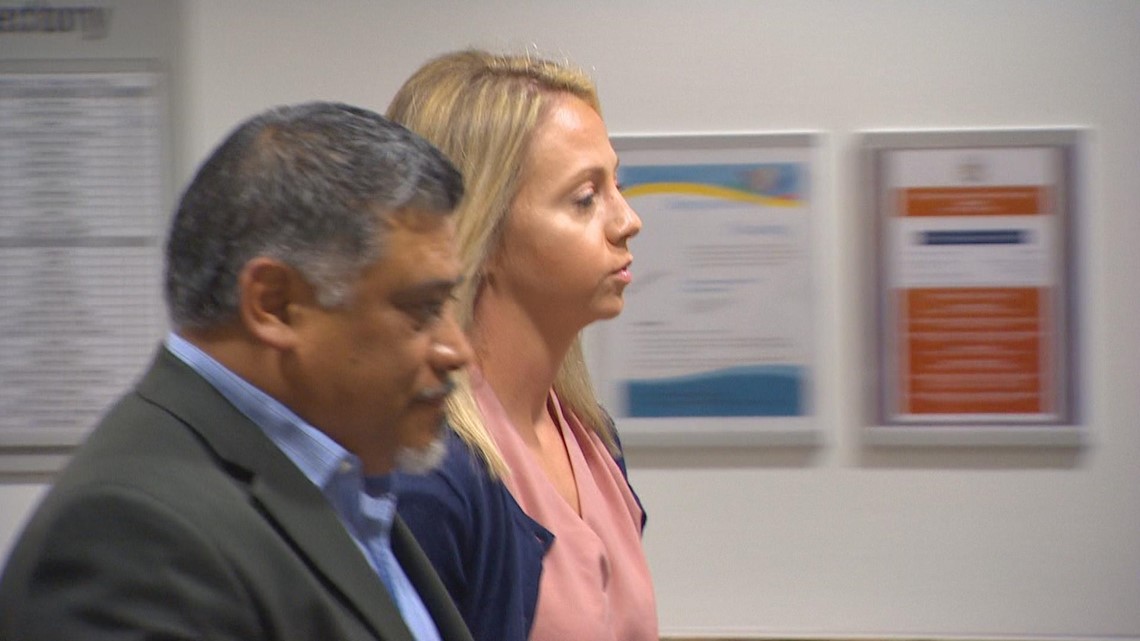
Jean was shot in the left side of his chest and the bullet clipped his heart, traveled downward through the left side of his lung, went through his diaphragm, stomach and intestines before stopping inside his body, testified a Dallas County medical examiner.
The injuries to his organs would've caused a lot of internal bleeding.
"I would expect that it would be painful," said Dr. Chester Gwin.
David Armstrong was cross-examined by defense attorneys Wednesday, continuing his testimony which began Tuesday. Defense attorneys showed jurors numerous photos depicting how the third and fourth-floor hallways and parking garage appear at the South Side Flats. Guyger had mistakenly parked on the fourth floor the night she shot Jean. There are no signs to show what floor residents are on, and each floor appears identical. Armstrong said that during his investigation, the Texas Rangers interviewed 349 residents. Of those, 15 percent had gone to the wrong door and tried to use their key. And 23 percent of the residents who lived on either the third or fourth floor tried to use their key on the wrong door. Armstrong also testified that there was a defect on Jean’s door that caused it to not close properly, making it easy for anyone to push it open.
Christin Nobel compiled a timeline from car, video and cellphone data for the Dallas County District Attorney’s office. The timeline shows when both Guyger and Jean left and returned to the South Side Flats. Jean had returned from an errand about 20 minutes before Guyger parked.
Taydra Jones was another resident at the South Side Flats. She testified that she was watching TV when she heard gunshots. She didn’t hear any yelling or voices before the shooting. Defense attorneys asked whether her TV volume was high, and she said it was.
Whitney Hughes was another resident at South Side Flats who heard gunshots the night Guyger shot Jean. She saw a police officer through her door’s peephole. Hughes identified the officer as Guyger in court. She saw Guyger on the phone. “It sounded like crying,” Hughes said.
Alyssa Kinsey also heard gunshots at South Side Flats. She was Jean’s next-door neighbor. They had met before on their patios, which were about 8 inches apart, Kinsey said. Kinsey was on the phone with her boyfriend when she “heard a very loud metallic sound.” Then she heard yelling, running and slamming, which seemed to come from the hallway. She also heard a woman on the phone say “apartment 1478.”
Dr. Chester Gwin performed the autopsy on Jean. He said the bullet that killed Jean traveled downward through the man's body, causing devastating injuries.
Day 2 testimony:
More than a dozen witnesses were called to testify during the second day of the trial. Jurors listened to the 911 call made by Guyger after the shooting. They also watched body-camera footage showing responding officers attempting to save Jean.
Guyger was outside Jean's apartment when the first officers arrived. She was seen on her phone at several points after the shooting.
Cellphone records admitted into evidence during the first day of the trial show that Guyger sent two text messages to her partner while she was on the phone with 911.
Jean was lying on his living room floor with a gunshot wound to the chest while Guyger walked in and out of the apartment after the shooting.
Karla Rivera is a 911 call taker with the Dallas Police Department. Jurors heard Guyger's 911 call while Rivera was on the witness stand. Two of Jean's family members left while the call was played, and his parents kept their heads down.
Sgt. Stephen Williams oversees the body camera and dash-camera management at the Dallas Police Department. He said Guyger checked out her body camera that day at 7:47 a.m. and checked it back in at 9:26 p.m.
Officer Michael Lee was one of the first responding officers in Jean's apartment. His body-camera footage was played for jurors. The footage showed officers struggling to get inside the apartment building without a code and eventually making their way to the fourth floor. Guyger runs up to the officers and starts to explain what happened. She shows them into the apartment. Lee tells her to go outside. His partner immediately starts performing CPR on Jean. "Come on chief," Lee says to Jean. His partner shouts, "Tell them to get here fast" of the paramedics. Lee tells him to keep performing CPR. Both officers keep encouraging Jean to "come on" and to talk to them. The footage shows other officers arriving and moving around to find bandages to apply pressure to Jean's wounds.
Officer Torey Dugas was another responding officer at Jean's apartment. His body-camera footage captures more officers trying to get into the apartment building. One officer says, "You said Guyger, right? That was my classmate." Someone else mentions she shot someone. Prosecutor Jason Hermus uses still images from the body camera footage to show where Guyger was parked on the fourth floor and how the vantage point shows the skyline and the roof of the apartments, which would be different from where she normally parks on the third floor.
Sgt. Breanna Valentine told Guyger to go downstairs away from Jean's apartment. When Valentine drove up in her squad car to meet Guyger downstairs, she was surrounded by friends, who appeared to be officers. Valentine told Guyger to sit in the squad car. The dash-camera, which also records inside the vehicle, was on. Valentine turned the camera off after another sergeant told her to. That supervisor is the president of the Dallas Police Association.
Det. Eddie Ibarra testified that Guyger's blood was drawn at 3 a.m. Sept. 7, 2018. She tested negative for drugs and alcohol. He also seized Guyger's uniform for forensic testing.
Det. Dale Richardson testified that Guyger's keys were found still hanging from Jean's door lock. Richardson and Ibarra recorded a video showing how the keys work. When Guyger's key is put into the lock, a light turns red. When Jean's key is put into the lock, the light turns green and there's a whirring sound.
Paramedic John Fairleigh said Jean was unconscious, not breathing and had no pulse when paramedics arrived.
Hollie Gilbralter was the regional manager for the ownership of South Side Flats at the time of the shooting. She testified that Jean had lived at the complex for more than a year. Guyger signed her lease July 13, 2018. Their units had the exact same layout.
Joshua Brown lived across the hall from Jean. The men met earlier in the day on Sept. 6, 2018, after an apartment manager knocked on Brown's door and told him about a noise complaint. Later that night, Brown was returning home when he heard loud voices as he walked down the hall. He said it sounded like "two people meeting each other by surprise" but couldn't make out what the voices were saying. After the shouting, he heard gunshots. Brown choked up on the witness stand and took a break after testifying about hearing Jean singing every morning across the hall.
Ron Jones also lived at the South Side Flats. He noticed a white truck driving in the parking garage "going fast around the corner." He saw the truck park and a female officer get out. He had gotten into his apartment and was looking for food when he heard gunshots and then a female voice say "someone in my apartment."
Bharath Madamanchi also heard gunshots at the South Side Flats. He said he didn't hear any loud voices or verbal commands before the shooting.
David Armstrong, a Texas Ranger, started testifying Tuesday afternoon but was still on the stand when court recessed for the day. His investigation into the shooting found that 23 percent of the third- and fourth-floor residents of the apartment building had gone to the wrong floor at some point. He also testified that Jean had returned to the apartments about 20 minutes before Guyger.
Day 1 testimony:
Though testimony was scheduled to begin Monday morning, the trial was delayed several hours while defense attorneys called for a mistrial because Dallas County District Attorney John Creuzot had given an interview despite a gag order in the case.
State District Judge Tammy Kemp denied the motion for a mistrial after individually questioning each juror about whether they had watched or seen the interview or heard any other news coverage of the case.
The jury and four alternates are sequestered for the duration of the trial.
Before opening statements, prosecutors and defense attorneys argued over whether cell phone records could be admitted showing Guyger had been sending flirtatious and sexual messages to her partner in the hours before the shooting on Sept. 6, 2018.
The records and messages were admitted before opening statements.
Alyssa Findley, Botham Jean's sister, testified that her brother was excited for his upcoming birthday when she had spoken to him before his death. She said he had recently had a wisdom tooth removed and had finally been cleared to eat ice cream. He was eating ice cream when Guyger entered his apartment. Findley said her brother smoked marijuana to counteract his ADHD. His apartment likely smelled like marijuana when Guyger entered.
Sgt. Robert Watson was Guyger's supervisor on the southeast crime response team. He described the team's work, which largely included arresting suspects. The group was assisting the SWAT team the day of Jean's death. Watson also explained the Dallas Police Department procedures for responding to burglary calls and barricaded persons. He said the department's general orders require officers call for backup.
Officer Martin Rivera was Guyger's partner. They had also been involved in an intimate relationship in the past. Rivera said he was no longer in a sexual relationship with Guyger. Their text and call history was entered into evidence showing they had been flirting and sending sexually-explicit messages throughout the day. Guyger was on the phone with Rivera for more than 16 minutes on her way home. It was 3 minutes and 44 seconds between the end of her call with Rivera and the beginning of the 911 call when Guyger reported she had shot Jean. Guyger also texted Rivera twice while she was on the phone with 911.
The Associated Press contributed to this report.

